VIEWPOINTS
Will Nakedness… Separate Us from the Love of Christ?
PCM: A Beacon of Hope: The Life Flourishing Church in Action in Myanmar
A Vision of a Physically & Spiritually Flourishing Church
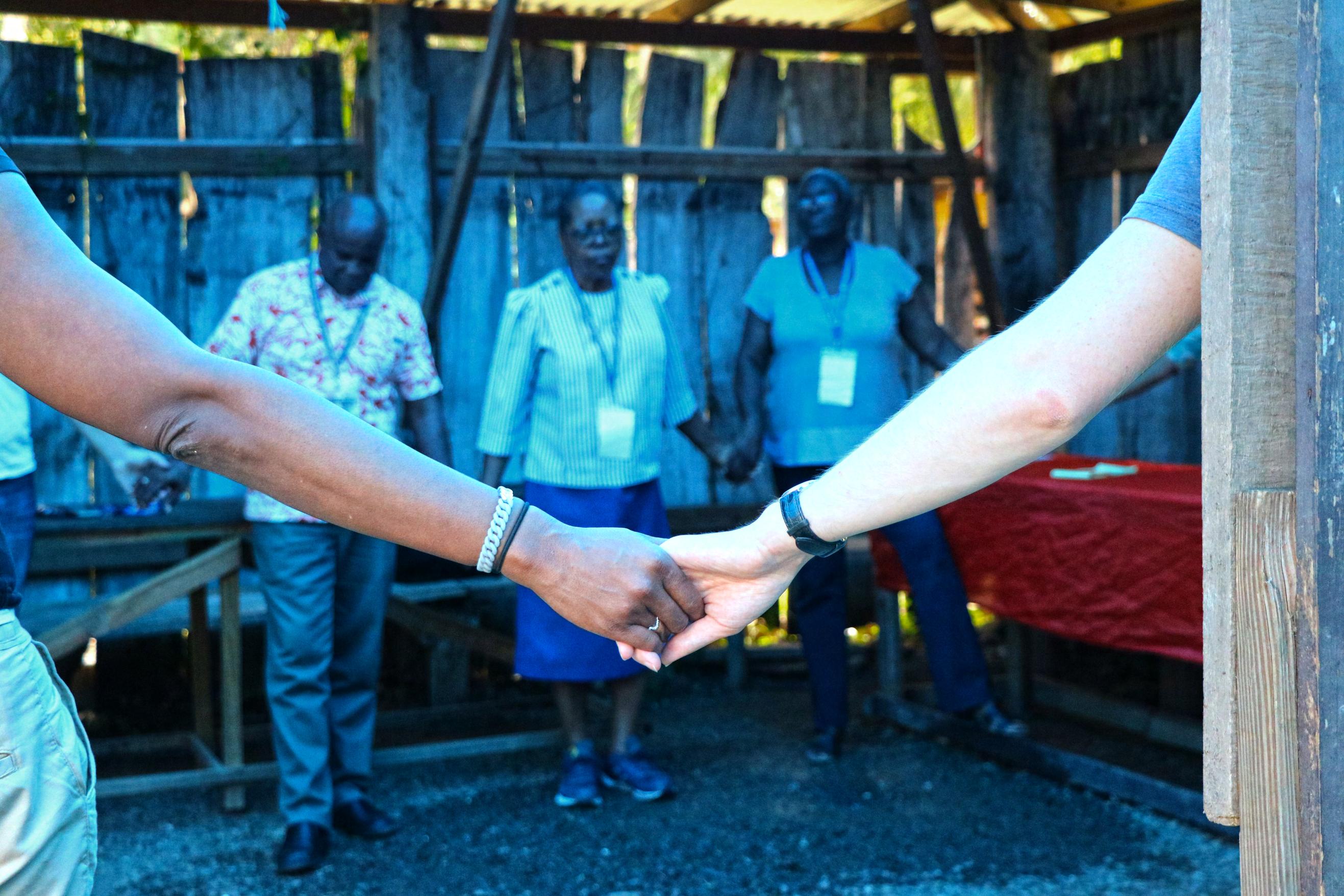
SEPTEMBER 2023 COUNCIL FOR WORLD MISSION
FOREWORD
Enabling CWM member churches and partner organizations
VIEWPOINTS Mission Programme & Partnership
Will Nakedness … Separate Us from the Love of Christ? -Romans 8:35 / Dr Vedha Kani
PCM: A Beacon of Hope: The Life Flourishing Church in Action in Myanmar / Elder Thang Mawia
A Vision of a Physically & Spiritually Flourishing Church / Andry Nirina Velosoa & Stephen Chia
AT A GLANCE CWM News
Guests bid farewell to the late Dr Preman Niles at cremation service
World urgently needs transformative ecumenism, keynote speaker notes at consultation
Transformative Ecumenism Movement Launched in Nairobi
Guyana launches commemorative events for bicentenary of 1823 Demerara Uprising National Commemorative Service pays tribute to heroes of Demerara Uprising
Former Missionaries Gathering: A Day of CWM’s past, present and future
Delving into CWM archives, scholars explore ways to decolonise mission studies
At Paci c youth consultation, a cry to “save our lives, save our seas, save our land”
DARE Global Forum opens: “a new world order is radically reshaping”
As DARE Global Forum concludes, theologians bring ideas and actions back to the grassroots Voices from the DARE Global Forum
Statements & Messages
Statement on the release of radioactive water from the Fukushima nuclear plant into the Paci c Ocean
Message on Transformative Ecumenism: Life with Justice and Dignity for All
In Memoriam Dr Daniel Preman Niles: An Asian Prophet for the World Mission
NIFEA Letter To G20 Leaders Summit 2023
Member Church News
AFRICA: UCCSA Launches Eco Initiative with Spekboom Tree Planting in Swakopmund
CARIBBEAN: CWM Moderator pays inaugural visit to Guyana Congregational Union (GCU)
EAST ASIA: The Presbyterian Church of Korea’s Journey Towards Environmental Stewardship
Ecumenical News
GEM School inspires proposals for economic justice for all
4 7 10 14 19 20 21 22 23 24 25 26 28 29 30 31 32 34 36 38 39 40 41 September 2023 3
Foreword

Enabling CWM member churchesand partner organizations to work ecumenically and collaboratively towards a transformative vision of Life-Flourishing Communities through sharing of people and resources as partners and friends in carrying out God’s mission globally and locally.
The Mission Programme and Partnership (MPP) envisions a mission partnership that serves to enable each participant in the partnership to benefit from as well as to contribute to this common endeavor, reflecting a spirit of ecumenical sharing. The MPP’s way of working is guided by the ethos of sharing, mutuality, interdependence and equal partnership of all parties.
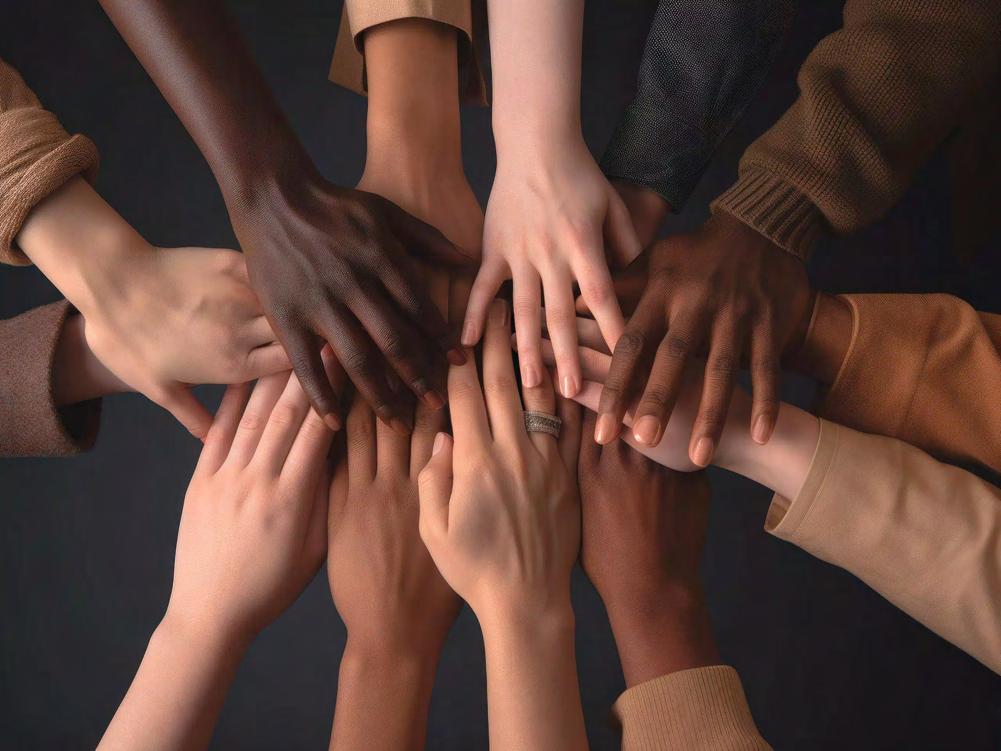
Sharing of People Ecumenically: No church is too small to give, and no church is too big to receive! Sharing of people means sharing of relationships. Sharing of people ecumenically has been CWM’s missional impulse since its formation year in 1977. Mission “from everywhere to everywhere” recognizes the Holy Spirit as a missionary, calling and empowering churches throughout the world to participate in God’s mission. As we know, such mission movements “from everywhere to everywhere” pave the way to a new sense of mutuality, reciprocity, and interdependence in mission partnership.
Sharing of people ecumenically is an expression of partnership and friendship in mission building around the ethos of sharing rather than transaction. We believe that “no church is too small to give, and no church is too big to receive.” The church in all places understands itself as both gifted and needy. All participants in God’s mission have deep needs but at the same time, they also possess great gifts for sharing in relationships.
Contextual Mission Thinking and Actions: Nothing is real until it becomes local! “Nothing is real until it becomes local”—is a mission imperative for the development of contextual mission thinking and actions. Mission is at the heart of CWM’s theology and vision, and this is fleshed out through CWM’s commitment to contextual mission thinking and actions through its programme delivery and resource sharing.
CWM Strategy 2020-2029 focuses on some key thematic areas through which these resources can be utilized to address needs at the congregational level.
FOREWORD September 2023 4
Resources are directed towards the mission priorities of congregations for transformative engagement in mission thinking and actions. CWM would need to first challenge itself and to intentionally encourage member churches to discern, define and develop mission programmes, reflecting the intersectionality of emerging issues.

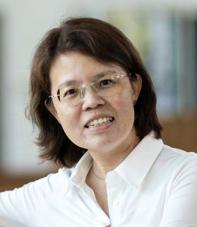
Enabling Life-Flourishing Church in Action has been identified as a thematic focus of MPP in CWM’s Strategy. Jesus calls the churches to become life-flourishing communities rooted in the ethos of inclusivity, justice and peace (CWM Strategy 2020-2029). In this INSiGHT, there are four mission stories of Life-Flourishing Church in Action contributed by member churches and mission partners. Each story speaks of CWM’s accompaniment of member churches in mission and how CWM can further enhance the contextual mission thinking and actions at the congregational level.

FOREWORD September 2023 5
Rev. Sim Joo Yee (Julie) Mission Secretary Mission Programme & Partnership
Vi ew points
September 2023 6
Will Nakedness … Separate Us from the Love of Christ?

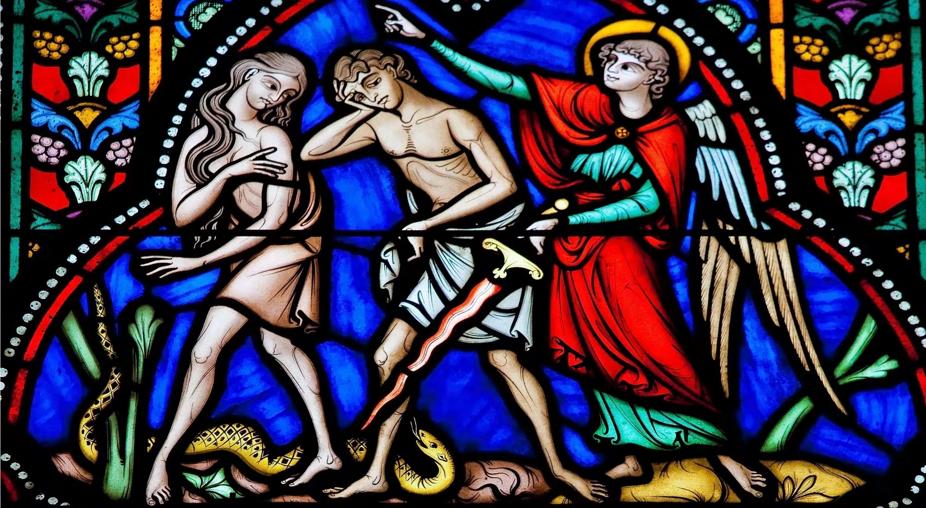 Romans 8:35
Romans 8:35
This question of Paul on faith struggles of the early church resonates a strong emotional memory among the Indian Christians. The reason behind this is related to an incident that happened in one of the northeastern parts of India called Manipur on May 4, 2023. This state has been experiencing a state-level violence, politically motivated, between the tribes by the local dominant religious group since May 2023. The most persecuted and affected community in this violence is the Christian community. The churches, seminaries, and houses are burnt down and people are still worshipping in the jungles. The most unfortunate and shameful violence that happened was, two women were gang raped and paraded naked on the road near the capital city of the state. Though the women who were paraded naked on the street are going through social, cultural, physical, and psychological traumas, they began to witness a reality that, life is beyond the socio-cultural rendering, claims, portrayal, and expectation of gender and sexuality of the marginalized bodies.
The same kind of violation of the body of the vulnerable can be found in Romans 8:35. It is one of
the most quoted verses from the New Testament on mission and among the missionary gatherings and preachings. It says, “Who will separate us from the love of Christ? Will hardship, or distress, or persecution, or famine, or nakedness, or peril, or sword?”
As Christians with missionary zeal and love for Christ, we have been referring to this verse with all piety and passion for Christ and mission. In these emotionally zealous pronouncements, we often tend to overhear the meaning of this verse. The meaning of the terms and language which are used in this particular verse has been interpreted within many religious, missional, ecclesial, and faith contexts. Also, the verse has been spiritualized and spiritually romanticized in our pulpits rather than being interpreted within the textual and socio-cultural contexts of the community behind this verse.
Having said that, let us focus on verse 35; particularly we would contemplate one of the terms used in this verse i.e., nakedness (γυμνότης). The Greek reading of the verse in fact throws some clarity on the meaning of the verse, this term in particular. The etymology of the Greek term (γυμνότης “gumnotes”)
VIEWPOINTS Mission Programme & Partnership September 2023 7
for nakedness demands our attention for a deeper meaning. The basic meaning of this term is “unclothed” in the strict sense (Gen 3:7; Matt 25:36), whereas figuratively it means “unconcealed,” “disclosed,” and “manifest” (Rev 3:17).
However, the feminine noun gumnotes (γυμνότης), which also means “nakedness,” describes the explicit meaning of being unclothed–a bare body. This nakedness is a forced one as per the religio-political contexts of the text.

Romans 8:35 is in fact a question, in which Paul poses a question: who or which or what can separate
Who
us from the love of Christ? Will nakedness separate us from the love of Christ? In this question, two aspects are imperative. One is love and the other one is nakedness. Paul connects these two aspects through Christ. The nakedness or the naked body cannot be the reason for someone to be separated or excluded from her/his relationship with Christ. In other words, gender and sexual orientation of a person do not have anything to do with a person’s faith in Christ. Rather, the nakedness, for the sake of faith, redefines and expands the socio-cultural meaning and views about body and sexuality. This faith experience, then, begins to offer an imagination which transcends all these cultural and religiously confined views on body and sexuality.
In this line, understanding the theological nuances behind it can be as follows. Faith is a conscience–-a conscious decision of one’s conscience, not merely a religious interest or concept. Faith in Jesus is a conscience which we deliberately acquire through a life of discipleship. Hence, becoming a disciple of Jesus is a conscious decision of a follower who is committed to
the discipleship conscience which is shaped by the ethos of Jesus’s teachings. Therefore, confining faith within particular socio-cultural and religious frameworks and, in turn, relating its meaning to claims about body and sexuality, needs our attention in perceiving our faith journey.
It is brilliantly expressed in verse 35 in which the nakedness expresses two more aspects here in the text: one is, it is for the sake of Christ. The conscious decision of becoming a disciple of Jesus, and the conscious decision to have faith in Christ itself has now brought the nakedness along with persecution, famine, sword, and danger to the faith community. The Christ
conscience of the faith community has invited consequences i.e., nakedness, from the dominant forces like political and religious powers of the early church contexts.

The second aspect is, nakedness is by force in verse 35—the dominant forces which failed in controlling the believers from having faith in Christ now react to their faith with forceful nakedness. The dominant powers which fail to deal with the conscience of any community often touch the body and sexuality of the vulnerable members of that particular community. The disciples and followers of the early church communities, particularly the Roman church members in this verse 35, had also gone through the same reality. Hence, the aspect of forceful nakedness for the sake of Christ points to two insights for us to consider.
Firstly, faith is a conscience which can not be replaced merely with the cultural demands of gender and sexual orientations. And so, bringing the aspect of gender and sexual orientation of anyone into the faith
VIEWPOINTS Mission Programme & Partnership September 2023 8
or which or what can separate us from the love of Christ?
arena of ecclesial context to justify the exclusion of women and other non-conforming gender communities from the church is challenged by this verse, for it affirms that the nakedness, which unveils the gender identities of the believers, blurs those identities and dissolves their socio-cultural “thickness” in faith contexts. Faith revolves beyond these identities and their related cultural politics. Faith experience and conscience transcends beyond the interest of the politics of class, caste, race, gender, and sexuality. For, faith in Christ is an experience of relationship with God, and this encounter becomes possible through discipleship engagement with the respective communities, not through condemning or excluding the “other,” poor, and vulnerable due to their class, caste, race, and gender identities.
Significantly, in verse 35, the aspect of faith in Christ has deconstructed the legalization and connection of the socio-cultural gender constructs and values, to the religious claims on body and sexuality of the believers in church. For instance, the Mosaic law which is concerning the advice to be careful not to expose the nakedness in Exodus 20: 26: “You shall not go up by steps to my alter, so that your nakedness may not be exposed on it.” This law is concerned about the behavior, in alter, which explicitly cautions on the relation between the nakedness and religious purity of the priest. Encountering God or worshipping God had a strong connection between body, i.e., sexuality and religiosity of a person not only in Judaism but also in all the established religions. Which faith is about outward expressions and customs which do not bother to question its relation to the inner being of the believer? Hence, the culturally-informed gender and sexual orientations and expectations have also became part of the belief systems of these established religions. In contrast, Jesus demanded faith in him which is beyond the cultural and religious demands of any religion of his time; and this aspect of his Gospel made possible a space for everyone in the Kingdom of God.
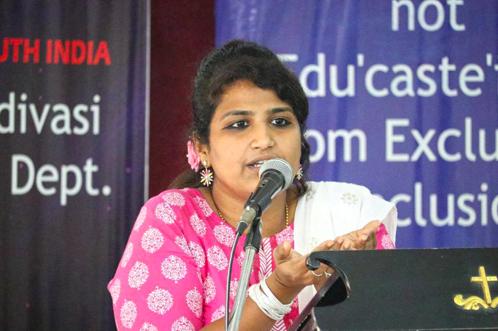
Secondly, the nakedness itself becomes a witness to the faith of the believers. The nakedness, which was seen only through the lens of sexuality and gender of a person, is now being portrayed through the lens of faith. And, this new hermeneutical lens invited the early church to revisit their “body” languages, sexuality, and gender norms, not to sustain the existing exclusive norms but to redefine the existing meanings of gender orientations and offer life-affirming imaginations and frameworks of life. For, faith is in and through experiences of the marginalized bodies.
Let us affirm the faith of the marginalized gender groups which have been stigmatized and excluded from and by the church. Because, the faith conscience and encounters of these marginalized genders are in and through, and beyond the experience of their body and sexuality.

VIEWPOINTS Mission Programme & Partnership September 2023 9
Dr Vedha Kani Church of South India
PCM: A Beacon of Hope
The Life Flourishing Church in Action in Myanmar
Myanmar has been in a state of turmoil since the military coup in February 2021. The National Unity Government, a Myanmar government-in-exile formed by the Committee Representing Pyidaungsu Hluttaw (CRPH) and several local ethnic armed groups, initiated a revolutionary war against the military junta, officially known as the State Administrative Council, leading to a civil war.
The military junta, consistently prioritizing its own interests, has shown little concern for the lives of civilians. They have employed various strategies of annihilation and committed widespread violence. Between February 2021 and August 2023, they have been responsible for the deaths of a total of 4,023 people, including democracy activists and civilians. Additionally, they have arrested 24,586 individuals, with only 4,685 of them released, while 19,901 remain in custody. Furthermore, the junta has launched 1,427 air strikes between February 2021 and May 24, 2023. In the first four months of this year alone, they conducted 454 airstrikes. Moreover, the junta has burned down 70,324 houses across the country from February 2021 to June 14, 2023. These acts of violence have exacerbated the humanitarian crisis and doubled the

number of internally displaced persons (IDPs) this year. According to UNHCR, the estimated total population of IDPs within Myanmar reached 1,934,200 by August 28, 2023.
As a result of these incidents of violence and crisis, the livelihoods of the Myanmar people have crumbled. The value of the currency has fallen by 50% since the coup, causing the prices of goods to rise three to four times. People are struggling to afford food, housing, and healthcare. Armed conflict and a shortage of doctors and nurses have hindered people from receiving proper healthcare, leading to a significant decline in the overall health of the population. The prices of medicines have also skyrocketed, making essential medicines limited and less accessible. This crisis has also severely impacted education, causing a collapse in the education system.
The Sagaing Region, situated in the northwestern part of the country, has been plagued by severe incidents of violence. Out of the 37 townships in this region, 32 have fallen victim to arson. Shockingly, the Sagaing Region accounts for 84% of all the houses that have been burned in the country during the first six months following the coup. Reports indicate that, within
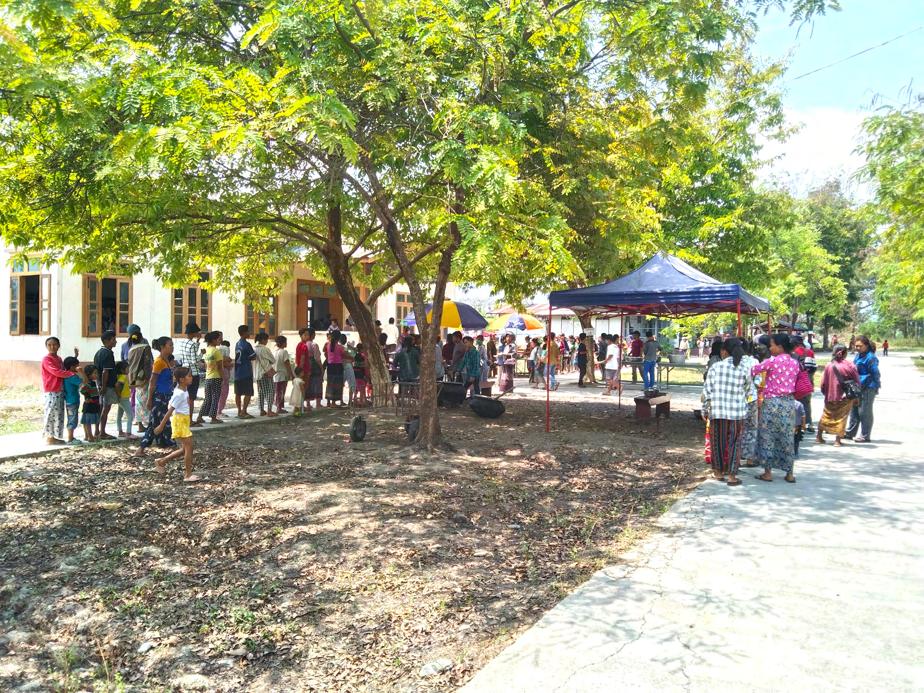
VIEWPOINTS September 2023 10 Mission Programme & Partnership
the two years since the military coup, the military junta has set fire to 5,900 houses in the Sagaing Region. This year, the number of IDPs in the region has also increased, with an estimated 813,200 IDPs, constituting 42% of the total IDPs in the country.
Kalay is a town situated in the Sagaing Region. It gained notoriety as the first township to take up arms against the junta following the coup on February 1, 2021. Kalay is home to a substantial number of members of the Presbyterian Church of Myanmar (PCM) and many Chin Christians, and it is also where the General Assembly office of PCM is located. Frequent armed clashes have occurred, resulting in numerous civilian injuries and casualties caused by gunfire, heavy artillery shelling, and airstrikes. In response to the critical crisis unfolding in the Kalay area, churches have taken action to assist the IDPs by providing food and shelters.
On March 31, 2023, the military junta launched an attack from the air, using MI-35 helicopters and heavy artillery during an armed clash near Pyin Taw Oo village in the northern part of Kalay Township. A confrontation between the junta and the People's Defense Forces (PDFs) occurred between March 31, 2023, and April 6, 2023, in the vicinity of Pyin Taw Oo and Nan San Pu villages. Two church buildings, Hosana Assembly of God and Shiloh Baptist Church, were damaged in fires caused by military aircraft. Additionally, two civilians were brutally killed by the junta. One civilian also lost his life in the airstrike. As a result of these clashes, residents from Pyin Taw Oo, Let Pan Chaung, Myauk Chaw Taw, Chan Thar Gyi, Nyaung Kone, Inn Kyin Khon, Zo Suan, Kim Lai, Tuithim, Tharyar Kong, San Taike, Zo Nuam, and other villages were forced to flee to Kalay.
Many individuals fleeing the armed clashes had neither relatives nor extended families in Kalay and lacked places to find shelter. Consequently, the Disaster and Crisis Response Team (DCRT) of the General Assembly, PCM, extended their hospitality by accommodating them at Tahan Theological College (TTC). They provided food, shelter, clothing, drinking water, medicine, soap, electric power, and other essentials to over 300 people. Those who were sick or injured were transported to the hospitals.
This support initiative commenced on March 31, 2023, and continued until April 11, 2023. As the number of displaced people increased daily, the DCRT negotiated with other camps and local NGOs and relocated the newcomers to these camps. To manage the growing responsibilities, more volunteers from PCM churches in Tahan and the surrounding areas were recruited to join the DCRT volunteer team. Eighteen volunteers from PCM churches of Tahan contributed by meeting the needs of those fleeing the armed clashes. TTC staff and faculty members also lent their support to the volunteers, offering assistance to the best of their efforts. Because the majority of the displaced individuals accommodated at TTC were Christians from various denominations, and given that the incident occurred during Holy Week, a Good Friday service was conducted on April 7, 2023, in the chapel of TTC. Rev. Cin Khan Suan, a pastor of Tedim Synod, presided over the Holy Communion service as requested by the CCRT.

Local churches and NGOs in Tahan and the surrounding areas collaborated effectively in extending hospitality to the displaced people. Tahan Mizo Thalai Pawl (TMTP) took on the responsibility of arranging transportation for the displaced individuals and placing

VIEWPOINTS September 2023 11 Mission Programme & Partnership
them in various shelters and camps hosted by local churches in Tahan. The churches that accommodated the displaced people included PCM Tahan Venglai, PCM Tahan Vengchhak, PCM Vengthlang, Phai Synod Center, Methodist Church Vengpui, EFCM Vengpui, EFCM Addict Center, Nazarene Church, Seventh-Day Adventist, Wesleyan National Center, El-Bethel Baptist Church, Biblical Presbyterian Church, and Methodist Church Mission Veng. It was reported that the number of displaced people during these armed clashes amounted to approximately 10,000 individuals.
The Disaster and Crisis Response (DCR) committee of the General Assembly, PCM, has undertaken various humanitarian efforts since January 2022. The committee and team have assisted civilians who encountered various crises between January 2022 and August 2023. The team has carried out various relief efforts as follows:

• They have accommodated over 460 displaced people in Kalay, providing for their needs and extending relief aid to 42 camps and shelters operated by local churches and organizations in Kalay and Tamu townships, as well as to four refugee camps in Mizoram State, their neighboring country, India.
• They have distributed relief aid to 115 families whose houses were burned due to gunfire, heavy artillery shelling, and mine explosions.
• They have offered condolences to the families of 22 casualties and provided relief aid to 56 injured individuals due to violent incidents caused by the junta. They have shown concern for the 31 individuals who
were arrested as porters and brutally tortured by the junta.
• They have provided relief aid to 30 households that were robbed by the junta.
• They have provided some financial aid to PCM Synods for repairing 30 quarters and 27 church buildings that were damaged by Mocha Cyclone. They have provided relief aid to Tedim Synod due to an outbreak of rat plagues in some areas of Tedim Township.

• They collaborated with local NGOs, volunteer nurses, and doctors and provided Covid-19 vaccination regimens to 1,690 people in thirteen different places in Kalay last year. Since people did not trust the junta and were reluctant to receive the vaccinations they provided, many civilians had to rely on NGOs for vaccination last year.
• They also conducted mask campaigns in Tahan market last year.
PCM was able to carry out these humanitarian efforts because of the prayers, gifts, and offerings from its members and partner churches, both inside and outside the country. It is genuinely thankful for their support and desperately needs continuous support. Our God is a God of the lowly, the oppressed, and the downtrodden; He always stands with these people and seeks justice for them. He established laws for His chosen people, Israel, to protect these individuals. They were commanded not to treat ger (strangers, foreigners, IDPs, refugees, etc.) with contempt (Ex
VIEWPOINTS September 2023 12 Mission Programme & Partnership
22:21; Lev 19:33), to judge them fairly (Ex 23:9; Deut 1:16-17; 24:17-18), and to meet their needs (Lev 9:19-20; Deut 24:19-22). We, who have become God's new people through Jesus Christ, are also commanded to obey and fulfill these commandments. The Lord Jesus said, “'Truly I tell you, just as you did it to one of the least of these who are members of my family, you did it to me” (Mt. 25:40). Those who are beaten, injured, displaced, and without food due to political violence, as well as those affected by natural disasters, are the most vulnerable and the least among us; churches are responsible for meeting the needs of these people.
Radio Free Asia, May 24, 2023, accessed September 1, 2023, https://www.rfa.org/english/news/myanmar/airstrikes-da ta-report-05242023163329.html.
DCRC Records. PCM, General Assembly. Tahan, Kalaymyo.
“More than 59000 houses have been burned in Sagaing Region.” ISP-Myanmar, August 9, 2023, accessed September 1, 2023, https://ispmyanmar.com/community/dm-48.
REFERENCES
“Daily Briefing in Relation to the Military Coup.” Assistance Association for Political Prisoners (Burma), accessed August 31, 2023, https:// https://aappb.org/?p=26117.
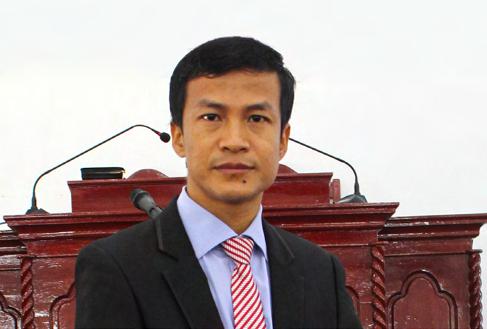
Christopher JH Wright and Marcel V Macelaru. “The Refugee Crisis – A Shared Human Condition: An Old Testament Perspective,” Transformation 35/2 (2018): 95.
“More than 70,000 houses in Myanmar torched since the coup.” Mizzima, June 18, 2023, accessed September 1, 2023, https://www.mizzima.com/article/more-70000-housesmyanmar-torched-coup.
“Myanmar update on the post-coup humanitarian situation.” ACAPS, May 4, 2023, accessed September 1, 2023, https://www.acaps.org>fileadmin>Main Media.

“Number of people displaced since Feb 2021 and remain displaced,” UNHCR: The UN Refugee Agency, August 28, 2023, accessed September 1, 2023, https://data.unhcr.org/en/documents/details/101434.
“Myanmar's junta increasingly relying on airstrikes, research group says.”
Elder Thang Mawia TTC lecturer GA (PCM) CCRT Committee member
VIEWPOINTS September 2023 13 Mission Programme & Partnership
A Vision of a Physically & Spiritually Flourishing Church
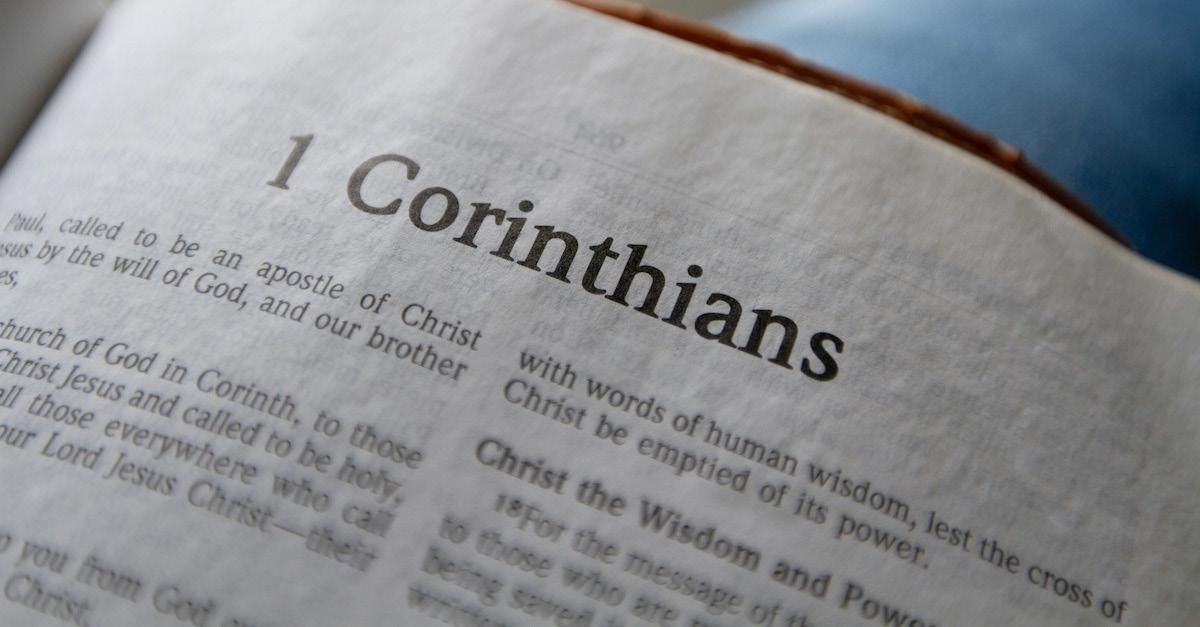
AN OLD BUT RELEVANT VISION
The Church of Jesus Christ in Madagascar, or FJKM (Fiangonan’I Jesoa Krity eto Madagasikara), is a missionary church in which the faith and the conviction of its believers, the fruit of the work of the Holy Spirit and the meditation of the Holy Scriptures all serve to guide the church to take responsibility and be directly involved in the proclaiming of the Gospel. This goes hand in hand with social work that touches the lives of the people in the community, a testimony ordained by the word of God which is the FJKM motto as stated in 2 Timothy 1:8a, “So do not be ashamed of the testimony about our Lord ...”
Through the involvement of the church, FJKM envisions that the number of Christians will increase and people will understand the role the Church of

Jesus Christ plays in the development of society, one that sees its general population afflicted by deep poverty. To that end, FJKM has developed a strategic plan to educate the church about the sharing of the Gospel, Bible study and the teaching of the faith to help people grow spiritually. This was the same strategy of the London Missionary Society (LMS) when they brought the Gospel to Madagascar 200 years ago, a strategy that proved effective and should be continued. The missionaries of old built schools and hospitals, engaged in agriculture and cultivated livestock, enabling the church to grow and stand on its own up to now.
A concrete example of this is the pilot project in Tsihombe, southern Madagascar. Three years ago, there was not yet a single FJKM church in this region. In response to this, the FJKM Atsimon Imahamasina church surveyed the region and applied the
VIEWPOINTS September 2023 14 Mission Programme & Partnership
Let nothing move you. Always give yourselves fully to the work of the Lord, because you know that your labour in the Lord is not in vain (I Corinthians 15:58)
“missionary approach” contextually as they preached the Gospel there. The local people were taught the scriptures with whatever material was available, and group Bible studies were conducted to shed light on the issue of their fight against poverty. This positive development prompted the church to start development projects that improved the daily lives of people through the building of schools, agriculture, livestock cultivation, professional training and education. In addition to this, prayer cells called “Base Church Community” were created, reaching more than 70 Christians regionally. This project by FJKM is currently still ongoing.
When the new FJKM school “FJKM Edena Vaovao Tsihombe” was founded by a pastor, the number of believers in the Base Church Community increased as many of the students, their parents and even some of their families became Christian. There are presently 120 students at the school and the FJKM Edena Vaovao school has been raised up as a Model School by the FJKM headquarters. Six teachers at this school have now become active members of the church. A few of them were previously non-believers but became born again as a direct result of their time spent teaching at this school.
FJKM’s sustained involvement in social work has had a significant impact on the community, and this initiative that has its roots in the work of the early missionaries is appreciated by many and has contributed to the flourishing and expansion of today’s church. By providing the connection between the material and the spiritual, this project helps new believers grow in faith so that they can stand as a testimony among the community and serve as a form of outreach. This project by FJKM was crafted and implemented based on the needs and advice of the local population. A grassroots initiative at its core, the objectives and the work were done in consultation with the people, the leaders and the local congregation.
BUILDING ECCLESIAL COMMUNITIES THROUGH HOLISTIC DEVELOPMENT
Tsihombe

FJKM’s MSP-4 project in Tsihombe, southern Madagascar aims to build a powerful ecclesial community (currently at 70 people) for it to be a powerful missionary congregation. This is done by promoting the holistic development and support of the living conditions of the local population, especially the most disadvantaged children, women and victims of severe malnutrition. To achieve holistic development is to promote inclusive education for the population and society at large. Some of the activities under this initiative include construction of water fountains (physical development); founding of a primary, secondary and technical-professional school
(intellectual development) adapted to local needs; and the creation of adult literacy programmes, agricultural programmes (sustainable farming initiatives) and short-cycle vocational training courses targeting poverty.
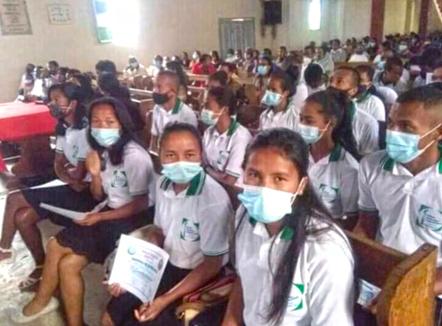
This project was mainly inspired by the poverty in spirit and the number of people who do not know Jesus Christ and His salvation in the Tsihombe region,

VIEWPOINTS September 2023 15 Mission Programme & Partnership
coupled with the fact that no church had previously been planted there before. The abject poverty and chronic malnutrition issues prompted FJKM to take action as a missional church.
Fihaonana
The MSP-4 project in Fihaonana has a similar aim: to promote the holistic and agricultural development of the local population. Through the implementation of a clinic, development of sports facilities, setting up of a library, and promotion of adult literacy and spiritual education through prayer groups, this project meets the physical, intellectual and spiritual needs of the local community.
Due to its proximity to the capital Antananarivo, Fihaonana is a farming community. Hence, the second part of the project looks into capacity building through an agricultural training centre that offers courses and training in livestock farming and agriculture. Through these initiatives, FJKM hopes to indirectly address the deeper societal problems of immigration, unemployment and crime by productive use of land, schools and training centres.
DEVELOPMENT AS A LONG-TERM, SUSTAINED EFFORT
It is not easy to change the attitude of a local population to move towards sustainable development work as they may have been accustomed to dependence on others and the habit of regularly receiving help. The lesson to be learned is that development work will not be successful unless it is a ground-up initiative. If the project is to be successful,
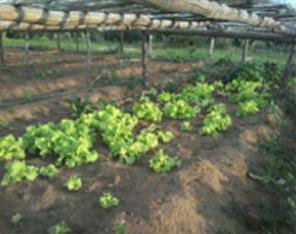
the so-called “beneficiaries” of the project must be actively involved.

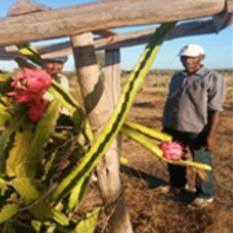
So far, results on the ground are already tangible as the number of Christians in the “Base Church Community” in Tsihombe has increased. The poor in the community, who were previously unemployed, feel that their living standards and livelihoods are improving. This is transformation beyond the numbers—transformation that is already felt in the community. Successful agricultural techniques, livestock farming and educational activities as a result of the project have become a good witness to the community and other regions. As a result of the joint development work of Christians and their communities, many are convinced to become Christians.
One example of this is the recently-built chicken coop which accommodates 300 chickens. This was a contribution of the local Christians and is now fully operational. This coop has achieved commercial production level, as produce is regularly sent to the capital Antananarivo for sale. Yet another example is the planting of fruit trees to solve the problem of malnutrition within the community. Seventy-five
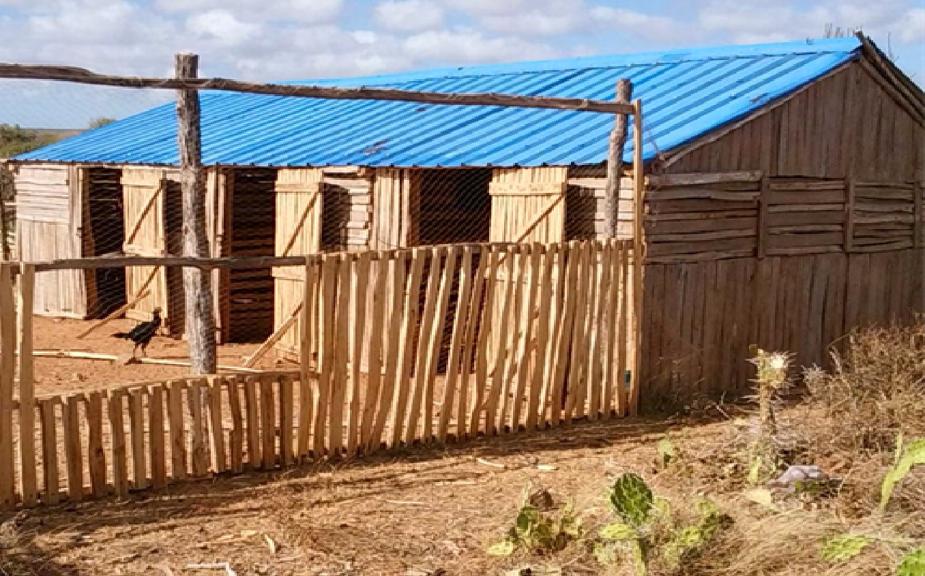 Chicken coop project
Planting of saplings
Chicken coop project
Planting of saplings
VIEWPOINTS September 2023 16 Mission Programme & Partnership
saplings which can withstand heat and drought were planted along with nutrients and vitamins. Amongst these were mango, orange, pytaia (dragonfruit), olive and cherry saplings.
Finally, adult literacy programmes have been crucial in raising the education level of the local population. Within these programmes were instructional classes on Christianity, business management and general education. Through these literacy programmes, the gospel was preached to the trainees, the skills of young people were cultivated and school dropouts were offered a second chance in vocational training.
FJKM believes development is a multifaceted affair with physical, intellectual and spiritual components. Until all three components are nurtured, development cannot be achieved. Moreover, development is a marathon and not a sprint. It requires long-term commitment by all, ground-up initiative and involvement, and partnership between key stakeholders like the church, development organisations, local communities and the government.
Today, the work of FJKM has become recognised within and outside the local communities. Even the government has witnessed the work done by the

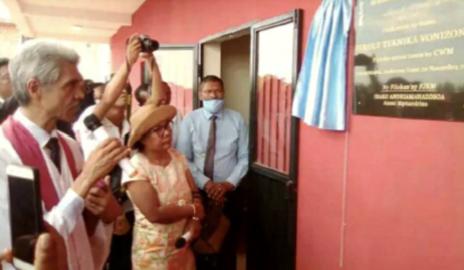
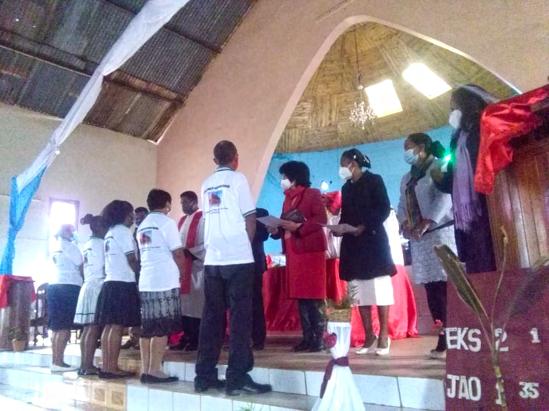
Graduation
Graduation

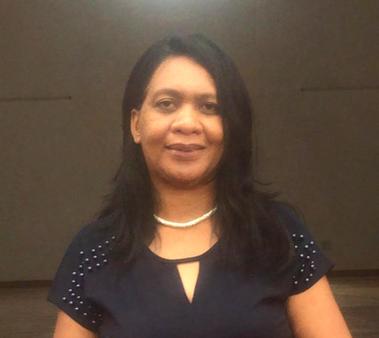

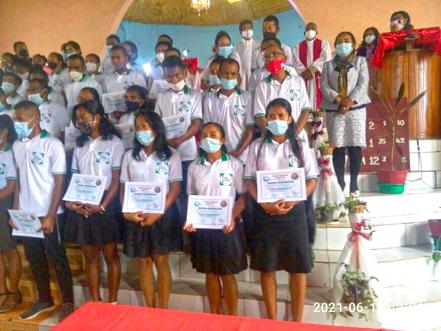 Inauguration of the centre
Graduation
Stephen Chia
(Project Manager-Mission Support Programme)
Inauguration of the centre
Graduation
Stephen Chia
(Project Manager-Mission Support Programme)
VIEWPOINTS September 2023 17
& Partnership
Mrs. Andry Nirina Velosoa (FJKM Executive Secretary Dep of Human Resources)
Mission Programme
At A Glance
September 2023 18
The funeral service took place on 25 August at 2:15 pm GMT

St John’s United Reformed Church
Lynwood Grove
Orpington
Kent BR6 0BG
Guests bid farewell to the late Dr Preman Niles at cremation service
Former CWM General Secretary Dr Preman Niles was laid to rest in a cremation service at the Beckenham Crematorium in London on 22 August, 2 pm GMT. Family, friends, former colleagues and more turned up to bid farewell to the distinguished Dr Niles, with many attending virtually through the live-streamed service.
It was a contemplative, dignified ceremony, starting with four pallbearers carrying the coffin into the venue as guests stood with heads bowed in respect. St John’s United Reformed Church (URC) minister Rev. Wendy Swan began with a Scripture reading of John 11:25 and words of introduction, as they gathered to commend Dr Niles to God’s eternal care and to commit his body to cremation.
Rev. Swan also gave the opening prayer, where she petitioned for God’s grace for them to find comfort in their pain, hope in sorrow, and assurance with life with God beyond the gates of death, followed by the next Scripture reading of Psalm 122 by Ms Sylvia Gnanapragasam.
CWM General Secretary Rev. Dr Jooseop Keum delivered a heartfelt tribute, followed by Rev. Dr Damayanthi Niles, the elder daughter of the late Dr Niles. In Dr Keum’s reflection, he spoke about the invaluable contributions of Dr Niles, who “through his gift in missiology, theology and finance, built up CWM”. The CWM General Secretary shared anecdotes of his interaction with Dr Niles, who nurtured the future leaders of the ecumenical movements in many ways and contributed to developing liberation theology in Korea, India, and Taiwan. He concluded by giving thanks for the ministry of Dr Niles, who dedicated his life to the glory of God, church, mission, and the people.
The news of the passing of Dr Niles has been met with an outpouring of grief from CWM member churches and ecumenical partners from the All Africa Conference of Churches (AACC), Churches of Jesus Christ in Madagascar (FJKM), Presbyterian Church of India (PCI), Church of North India (CNI) and Kiribati Uniting Church (KUC) providing a glimpse of Dr Niles’ extraordinary work in the ecumenical movement and interfaith dialogue.
AACC General Secretary Rev. Dr Fidon R. Mwombeki expressed profound sorrow, emphasizing Dr Niles’ commitment to fostering unity and understanding among different faiths and visionary leadership. President of the FJKM (Churches of Jesus Christ in Madagascar) Rev. Irako Andriamahazosoa Ammi wrote that he played a pivotal role in Asian contextual liberation theologies.
“His contributions in the ministry of God through CWM and CCA will be remembered in history,” stated The Presbyterian Church of India (PCI)’s Senior Administrative Secretary Rev. Dr K. Lalrinkima. Further condolences arrived from former CWM General Secretary and Minister Emeritus of the United Congregational Church of Southern Africa (UCCSA) Rev. Dr Des van der Water; Church of North India (CNI)’s General Secretary Sumit Gupta who offered prayers for the repose of Dr Niles’ soul; and Kiribati Uniting Church (KUC) General Secretary Mareweia Riteti, who lauded Dr Niles’ legacy which has now been passed on to various churches.
Those present observed a moment of silence to reflect before they stood for the Committal of Dr Niles’ body for cremation. The cremation service drew to an end after closing prayers and a blessing.

September 2023 AT A GLANCE CWM News
World urgently needs transformative ecumenism
AConvened by the Council for World Mission (CWM) in partnership with the All Africa Conference of Churches (AACC),
the consultation brought together 60 participants from different faith-based organizations, theological institutions, churches, and civil society organizations from 26 countries.

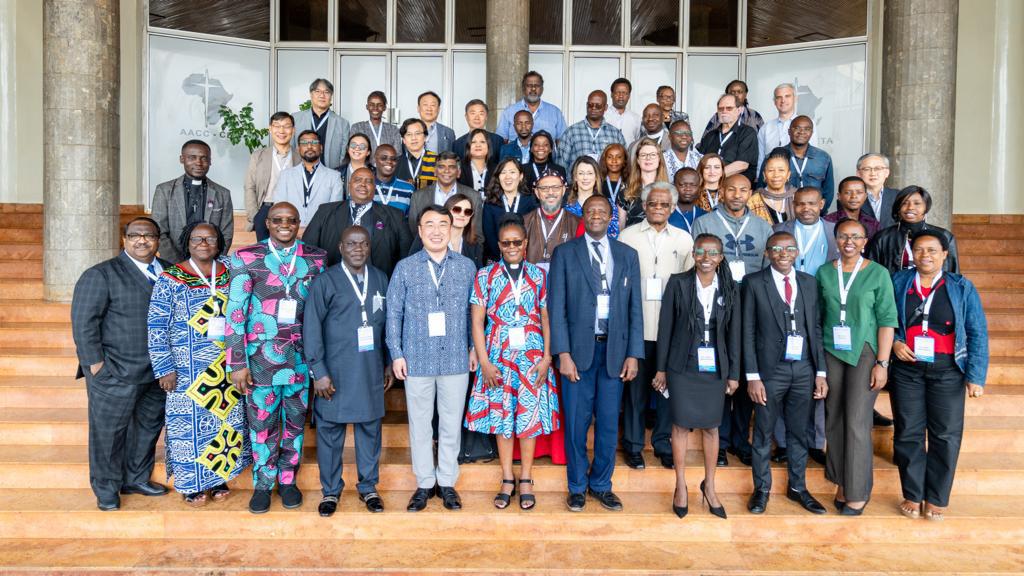
The participants were welcomed by Rev. Dr Jooseop Keum, General Secretary of CWM, and Dr Sudipta Singh, Deputy General Secretary for Programmes of CWM. Rev. Dr Fidon Mwombeki, General Secretary of the AACC, and Rev. Dr Lesmore G. Ezekiel, the Director of Programmes of the AACC, also made welcoming remarks.
The keynote address was delivered by Rev. Lydia Chemei, an ordained minister in the Reformed Church of East Africa (RCEA) and a doctoral student at St Paul’s University, Kenya.
In her address, Rev. Chemei described herself as an African woman with an inclination to postcolonial and womanist criticism. She emphasized the need to
The keynote address was followed by panel discussions focused on “Naming the Challenges” and “Addressing Legacies: Colonialization and Slavery”. The consultation continued until Saturday, August 19.
According to the Concept Paper of the consultation, the launch of Transformative Ecumenism in the continent of Africa will be informed by the diversity, complexity, and global nature of Christianity in the 21st century.

September 2023 20 AT A GLANCE CWM News
Transformative Ecumenism Movement
Launched in Nairobi
The Transformative Ecumenism (TE) Movement was launched on Saturday, August 19, 2023, at the Desmond Tutu Conference Centre in Nairobi, Kenya. The launch came after three days of a consultation on transformative ecumenism that began on August 17 and was attended by over 100 people, including eminent religious leaders from Kenya and across the globe.
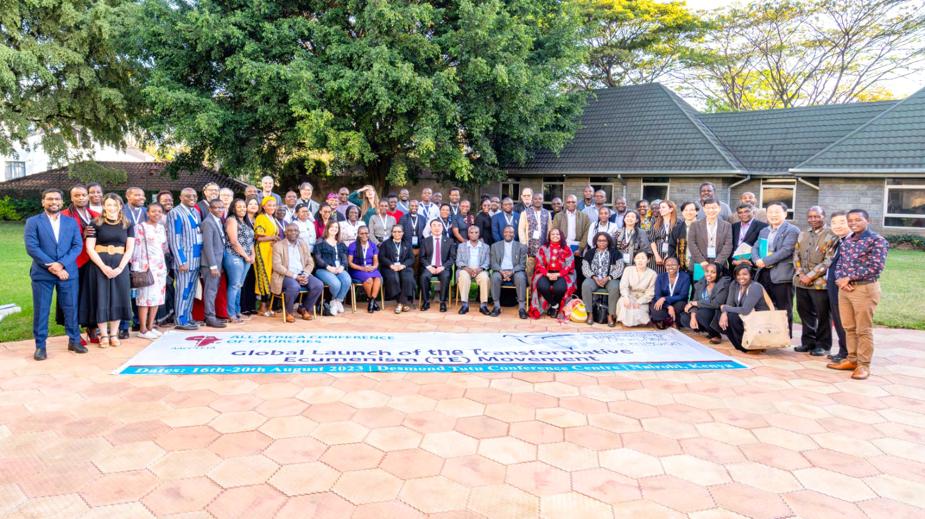
responsibilities, to look beyond competition to achieve true solidarity and complementarity,” he continued.

Rev. Dr Sam Kobia, former General Secretary of the World Council of Churches, delivered a good will message in which he emphasized that the Transformative Ecumenism Movement deals with the past in the present and the need for a new birth to be relevant in the world.
In her keynote address, Prof. Puleng LenkaBula, Vice Chancellor of the University of South Africa (UNISA), reflected on transformative ecumenism for another world. She noted that transformative ecumenism must extend beyond religious differences to name the challenges that global ecumenism must address.
said Rev. Dr Jooseop Keum, General Secretary of the Council for World Mission (CWM), in his special remarks at the launch. “I would like to thank the All Africa Conference of Churches (AACC), its General Secretary, Rev. Dr Fidon Mwombeki, and all the colleagues for hosting this event. It is significant to launch this new movement with the leadership of AACC here in Africa,” he continued.
“We regard this launch, which is a product of a decade of discernment and collaborative deliberation on the needs of the current generation in the ecumenical movement, as indeed a milestone,” noted Rev. Dr Fidon Mwombeki, AACC General Secretary, in welcoming remarks. “We are launching the movement to connect globally, to look beyond institutionalism to connectivity, to look beyond big individualized names to communities in post-modernism, and accept our
Speaking on behalf of the young people, Ms Vivian Ritho appreciated the ecumenical leaders present for trusting young people and expressing their commitment to mentor and accompany them as present and future leaders.
The launch concluded with a closing prayer led by Dr Rommel Linatoc, praying that the Triune God would be with the Transformative Ecumenism Movement on its journey. The launch of the Transformative Ecumenism Movement is a significant milestone for the ecumenical movement. Presenting itself as a spirituality of life and a vision of the world that ensures a life of justice and dignity for all, transformative ecumenism calls for a movement of transformation through bold and prophetic expressions of discipleship.
“We, as a community of transforming disciples, dare to, together in the Transformative Ecumenism Movement, encourage and empower each other to boldly share the good news of transformation with the world,”
September 2023 AT A GLANCE CWM News
Guyana launches commemorative events for
bicentenary of 1823 Demerara Uprising
Guyana stood at the cusp of its history in August with a series of commemorative events for the Bicentenary of the 1823 Demerara Uprising, testament to the courage and fortitude of nearly 12,000 enslaved peoples during a pivotal point in slave history.
Visitors were able to view the National Museum of Guyana’s exhibition paying homage to the Demerara Uprising, which was inaugurated on 25 August 2023 by His Excellency President Dr Mohamed Irfaan Ali. This landmark exhibition will be enhanced by Council for World Mission (CWM)’s digitalised materials from its archives at School of Oriental Studies (SOAS), London. CWM had responded to the Guyana Reparations Committee and Guyana government’s request, and offered valuable materials that were previously unavailable in Guyana.
The exhibition, deemed an educational, historical and cultural contribution of the Guyana government, will receive news coverage from the well-established BBC and The Economist. It brings to light untold stories of CWM/LMS missionaries
who denounced the oppression of plantation owners and were supportive of the resistance efforts and their aftermath.

An intellectual exploration of this significant milestone of the bicentenary was extended with the International Reparations Conference at University of Guyana on 26 August. Organised by University of Guyana and Guyana Reparations Committee, local and regional scholars delved into the legacies of slavery and its far-reaching impact.
Guyana Congregational Union (GCU), a CWM member church, has taken the meaningful step of producing a video to honour the sacrifices of Quamina and those who struggled for emancipation in the 1823 Uprising. In turn, the Guyana Reparations Committee is assiduously exploring sharing it on Guyana television, preserving the legacies of these heroes for future generations.
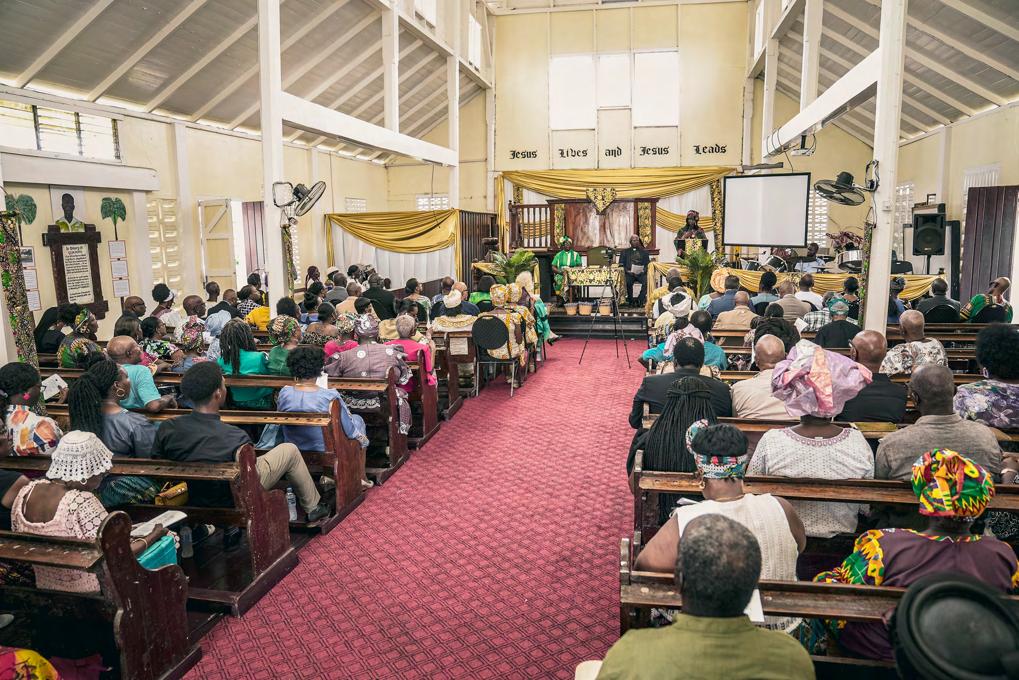
September 2023 22 AT A GLANCE CWM News
National Commemorative Service
pays tribute to heroes of Demerara Uprising
800,000 enslaved Africans on 1 August 1834. Legislative assemblies in colonies abolished the apprenticeship system and full freedom was granted to all former slaves on 1 August 1838. John Smith and Rev. John Wray of the London Missionary Society (LMS), the forebear of CWM, educated the enslaved Africans in reading and writing, and to believe in the equality of all in the eyes of the Lord.
CWM Moderator Rev. Lydia Neshangwe made reference to this when she brought greetings to this commemorative service, reminding those present of the importance of this occasion as the
Demerara Uprising laid the foundation for the global and local abolitions that came in the next
leading to the emancipation of many. Considering it an inspiring event, the CWM Moderator asserted that the struggle for economic, psychological, social, and spiritual freedom continues, and affirmed CWM’s accompaniment in celebration and remembrance with them, and in mapping out a future together.
Bethel Congregational Church (BCC), which is part of Guyana Congregational Union (GCU), a CWM member church, hosted a National Commemorative Service to observe the bicentenary of the 1823 Demerara Uprising on 20 August 2023. Its distinguished guests in attendance included Guyana Prime Minister Mark Phillips, Member of Parliament Hon. Dr Karen Cummings, Leader of the Opposition Aubrey Norton, Deputy Mayor of George Town Denise Miller, Foreign Secretary Robert Persaud, Permanent Secretary Elisabeth Harper, Chair of Guyana Reparations Committee Eric Phillips, and Council for World Mission (CWM) Moderator Rev. Lydia Neshangwe.
Through a heartfelt liturgy crafted by CWM, the service honoured the legacy of leaders such as Quamina – a deacon and member of this church – and the sacrifices and valor of nearly 12,000 enslaved people who participated in the revolt for freedom.
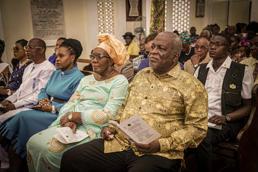
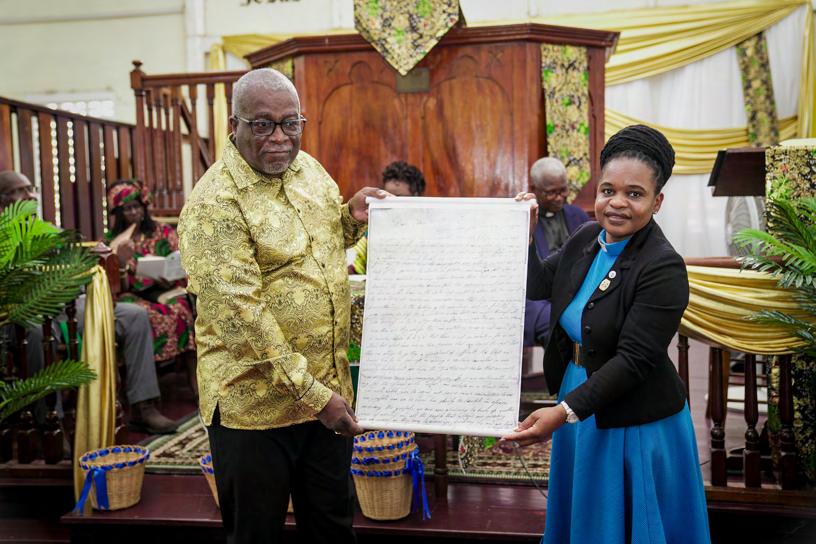
The service was lively, peppered with worship songs throughout, with highlights such as Rev. Neshangwe’s presentation of Quamina’s letter to the Guyana Prime Minister, as a symbol of shared history between Guyana, GCU and CWM. The sermon was preached from Galatians 5:1 & 13-15 by Rev. Dr Roderick Hewitt, who is Chairperson of CWM’s The Onesimus Project and President of International University of the Caribbean.

The 1923 rebellion, together with a revolt in Jamaica in 1831, contributed significantly to hastening the Emancipation Act. This brought about the freedom of
A series of commemorative events were progressively rolled out over the week. Following the Commemorative March from Mahaica to Parade Ground which took place on 18 August, an exhibition to mark the bicentenary officially began on 25 August, with His Excellency President Dr Mohamed Irfaan Ali gracing the occasion to launch the exhibition. In addition, the University of Guyana and Guyana Reparations Committee International Reparations Conference was held the next day.

The 1823 Demerara Slave Rebellion is widely acknowledged as one of the largest uprisings by enslaved people and stands as a pivotal chapter in the history of slavery.
September 2023
AT A GLANCE CWM News
Former Missionaries Gathering:

A Day of CWM’s past, present and future
Council for World Mission (CWM)’s worship and communion service for its retired missionaries on 21 August 2023 at Kensington United Reformed Church (URC) was a gathering of those who had served the missionary movement, and a day of remembrance, reflection and vision. It was a poignant mingling and fellowship of CWM’s past, present and future, bringing together former missionaries, current Partners in Mission (PIM), CWM scholarship students, leaders of two CWM Europe member churches, Union of Welsh Independents (UWI) and Congregational Federation (CF), and World Communion of Reformed Churches (WCRC) Gender Justice Officer Rev. Dr Minwoo Oh.
across the globe that have transformed today into
stated CWM General Secretary Rev. Dr Jooseop Keum in his welcome message.
Dr Keum went on to provide updates on CWM’s work including its new programmatic structure (NPS), The Onesimus Project (TOP), and the upcoming Assembly in 2024.
Dr Keum expressed gratitude for the former missionaries’ labour of love and years of faithful service in the mission field, assuring them it will be emulated by those to whom the baton has been passed. He wished them blessings for good health and fulfillment in their retirement, with the promise that the exemplary work they devoted in their prime will continue to thrive.
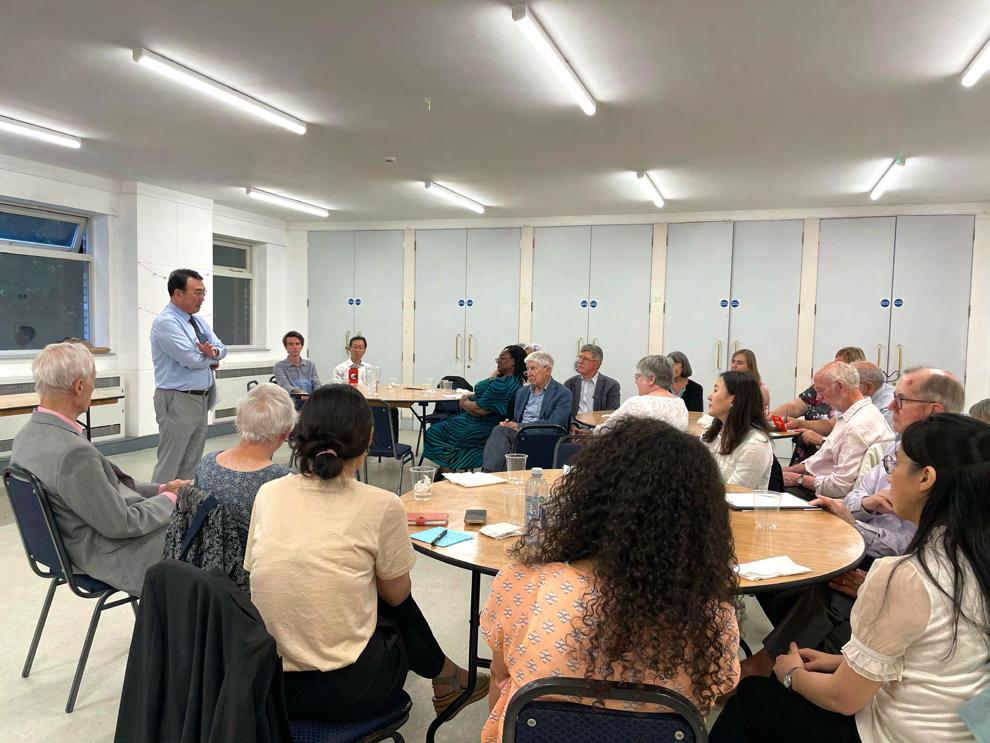
“CWM is the outcome of the vision, commitment and sacrifice of young men and women who served God wholeheartedly, among the communities
our member churches,”
September 2023 24 AT A GLANCE CWM News
Gathering at the School of Oriental and African Studies (SOAS) Library at the University of London on Sept. 4, 2023, eight students and academicians from universities and research institutions across the United Kingdom explored together ways to decolonize mission studies.
Part of the SOAS Seminars series, the gathering offered access to and exploration of the CWM archives dating back to 1795.

Scholars who have been working on archives from decolonial perspectives presented their research and worked while simultaneously guiding participants through archival material. CWM archivist Jo Ichimura offered an archival overview with the theme: “Voices in the archives: exploring the archival legacy of CWM.”
Housed at SOAS Library since 1973, the CWM archives are a unique historical resource for the study of the global spread of the Christian faith over the last 200 years, used by academic researchers, family historians, churches, and communities from around the world.
“The CWM archive is a treasure trove for the modern missionary movement,” said CWM General Secretary Rev. Dr Jooseop Keum. “CWM is delighted that so many scholars undertake research in the archive in person and through digital access. CWM has been a leader in decolonising mission since 1977.”
The seminar concluded with lunch and refreshments. The next SOAS Seminar is Oct. 2, 2023, with the title: “What girth the dearth? African voices from the LMS sources in Southern Africa.”

September 2023 AT A GLANCE CWM News
At Pacific youth consultation
Twenty-seven young people from ten CWM Member Churches in the Pacific, eight of them from the CWM Training In Mission (TIM) programme, gathered in Funafuti, Tuvalu, from 7-14 September for a consultation on climate justice.
The consultation aimed to empower youth, promote interdisciplinary learning, recognize the value of Indigenous knowledge, and ultimately lead to concrete actions.

That urgent need was expressed by a TIM participant from the Pacific who reflected that Pacifika youths currently are born out of a cry. “A cry to save our lives, to save our seas, save our lands, especially our cry to save the memories we shared in our lands with our parents, with our grandparents and now our ancestors. Oh, we are drowning!”
participants heard from renowned eco-theologian Prof. Ernest Conradie from the University of Western Cape in South Africa.
Tuvalu is emblematic of the existential threat faced by low-lying nations in the face of climate change. By concentrating on climate justice, the consultation addressed the urgent need to advocate for equitable solutions to climate-related issues.
The young people participated in hands-on activities such as coral planting, mangrove planting, and airport cleanup. Coral planting and mangrove planting are essential for environmental conservation since coral reefs and mangrove ecosystems play crucial roles in coastal protection, biodiversity preservation, and climate resilience.
Airport cleanup activities engaged participants with the local community and demonstrated the importance of community involvement in environmental stewardship.
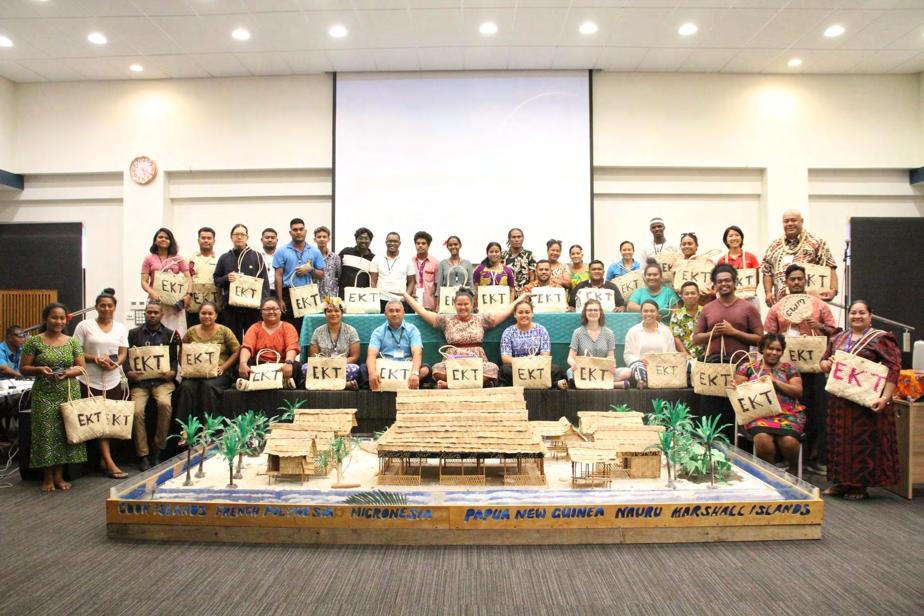
In addition to enhancing their understanding of climate change, developing critical skills, and becoming advocates for change,
A cry to “save our lives, save our seas, save our land”
September 2023 26 AT A GLANCE CWM News
“Their active involvement in environmental activities like coral planting and mangrove restoration, alongside their engagement in discussions on climate justice showcases the power of youth to drive positive change. Together, we are sowing the seeds of a sustainable and just future, not only for Tuvalu and the Pacific but for our planet as a whole.”
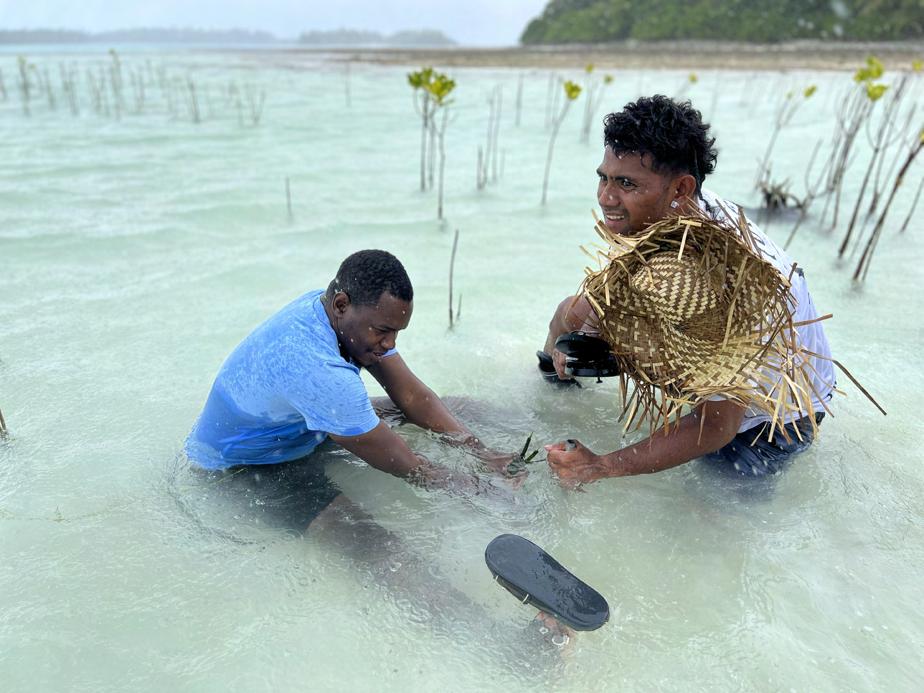
The event concluded with a sense of renewed purpose and determination among the participants. Participants left with concrete action plans, including
The event’s conclusion marked the beginning of a journey towards a more sustainable and just future for Tuvalu and the broader Pacific region. Youth participants were united in their mission to protect their lands, seas, and cultural heritage from the threats of climate change, and expressed their determination to continue their efforts beyond the event.

“I am deeply inspired by the passion and commitment of the young participants in this consultation,”
said Rev. Daimon Mkandawire, CWM Mission Secretary – Ecology and Economy.
September 2023
the importance of Indigenous knowledge, and the need for youth involvement in climate decision-making processes.
AT A GLANCE CWM News
DARE Global Forum opens:
The Discernment and Radical Engagement (DARE) Global Forum opened on 13 September in Bangkok, Thailand, where Council for World Mission (CWM) General Secretary Rev. Dr Jooseop Keum reflected on “Liberation Questions: For What and for Whom Are We Decolonising?”
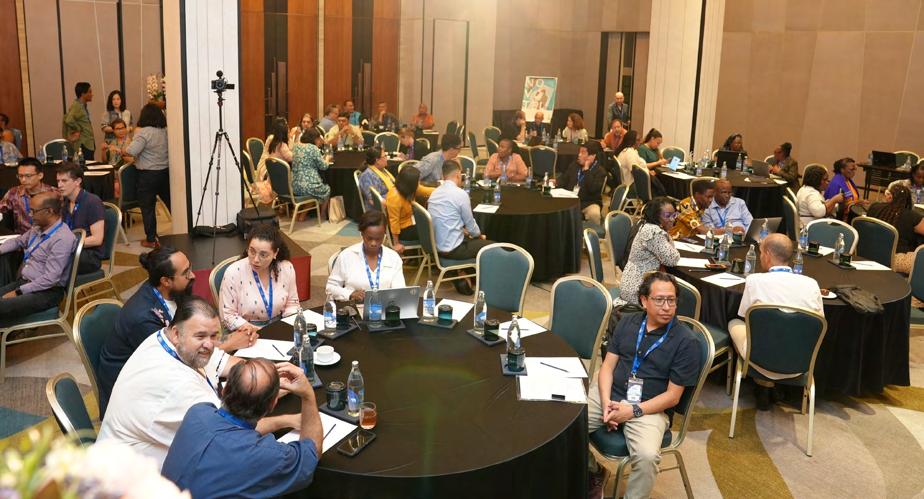
Dr Keum reflected on the grave challenges the world is facing, including economic recession and skyrocketing inflation. “Such crises create divisions and destabilise communities to dominate and rule over the poor and oppressed for the benefit of a few,” he said. “On the other hand, a new world order is radically reshaping.”
Dr Keum thanked what he described as “progressive and subversive theologians” for their work towards collective discernment and radical engagement on various critical issues that are pertinent to our contemporary world.
side of human nature is being manifested overwhelmingly without any shame,” he said. “Greed for power and wealth, violence and resentment are competing to search for victims.”
History is moving backwards in our times, Dr Keum continued. “The empires are being fuelled by the resurgence of neo-Cold War structures, the revival of racism and fascism, and global imperial dictatorship,” he said. “Is this really the world we aspire to live today?”
The struggle for liberation is infinitely complex, Keum said. “CWM, as a community of transforming disciples, dares to let God’s justice and peace shine brightly in the world,” he said. “As the DARE brings progressive theologians, church leaders and social activists into a discerning and creative space, it plays a prominent role in interacting with faith and life, offering vital critique to the socio-economic and political issues of the day, and translating academic work into intellectual activism.”
How will we know whether we really believe in the vision of the new heaven and earth? “Our mission is to reveal this hope from the margins to the world,” concluded Keum. “In a world in which injustice and violence seem almost insuperable, where hatred and racism seem to thrive, and where suffering is so widespread and terrifying, our theological discipleship is costly,” he said. “Our mission is witnessing to a liberating gospel.”
He further noted that division, fundamentalism, violence, and discrimination are all on the increase everywhere in the world. “The darker and more violent
The DARE Global Forum was held in Bangkok under the theme “Liberation quest(ion)s.”

“The global empires are dividing the world and dictating to nations and peoples to be in compliance with their rule of empire and forcing them to take their own side of interests,”
explained Dr Keum. “There is competition for militarisation due to insecurity and division.”
“a new world order is radically reshaping”
September 2023 28 AT A GLANCE CWM News
As DARE Global Forum concludes
Theologians bring ideas and actions back to the grassroots
As the Discernment and Radical Engagement (DARE) Global Forum concluded on 16 September in Bangkok, Thailand, 120 participants from 30 different countries began to return home, bringing new ideas, actions, and inspirations with them.

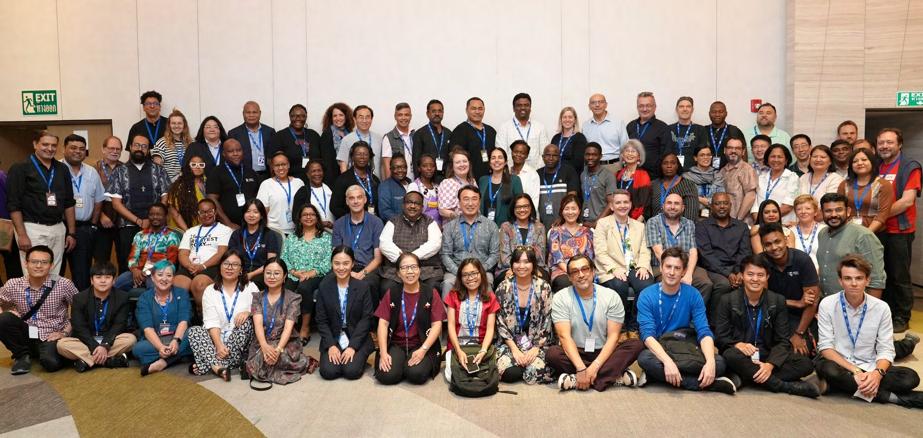
The forum—convening under the theme “Liberation quest(ion)s”—was a platform for scholars and activists from different parts of the world to address critical concerns radically, creatively, and justly, and to create resources that can shape the future of biblical and theological education.
The gathering was divided into six streams: Ecology and Anthropocene, Economy and Peacebuilding, Development and Coloniality, Rituals and Ceremonies, Slaveries and Discipleships, and Doing Theology in the Age of Crises.
The 2023 DARE welcomed a record number of participants from the Global South, as well as a record number of young participants,
all of whom creatively challenged mainline theological and biblical scholarships.
The forum was led by a Steering Group, all of whom made a 15-month commitment to plan,
moderate, and follow up the forum with publications, webinars, and other means of communicating the fruits of DARE to CWM’s wider global audience.
 The 2023 DARE forum marked a return to Bangkok, where the first DARE forum was held in 2017.
The 2023 DARE forum marked a return to Bangkok, where the first DARE forum was held in 2017.
September 2023 AT A GLANCE CWM News
Voices from the DARE Global Forum

Joerg Rieger, Vanderbilt University, USA
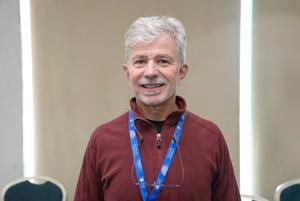
“CWM converted me to believing that missionary agencies of the church can do work that is progressive,” said Rieger. “I’ve been to every DARE meeting since.”
Seforosa Carroll, United Theological College, Australia
“DARE is about contributing to making possible a new heaven and a new earth. That’s the long-term vision. It’s also a way to listen to dreams and hopes for a transformed future through meeting people and hearing their stories as they share in the struggle and celebrate milestones and achievements.”

DARE, she added, is “a space where you can come talk about something that you may not necessarily have the freedom to talk about in your institutions.”
Sithembiso Zwane, South Africa, University of KwaZulu Natal
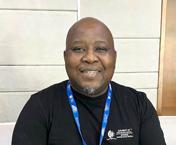
“It’s not about speaking for people but speaking with the people,” said Zwane. “How are you linked to the struggles of the people?”
Zwane believes that, ultimately, the work of DARE must be embedded in communities. “That way we are able to justify our belief that we are engaged in liberation struggles,” he explained. “For instance, where I come from, we are dealing with the issues of migration and migrants.”
Luis Martinez Andrade (Mexico), Université Catholique de Louvain
“I really hope that this conference could create an important platform not only for academics but for activists to diagnose the global situation but also try to think about whether there are alternatives,” he said. “My hope is to create a global network to work together.”
He looks forward to the fruits of the conference, which will come in the form of publications, articles, and webinars. “We want to invite other scholars, activists, and students to study these links between ecology and theology,” he said.
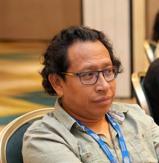
Rieger noted that a lot of conversation about post-colonialism is being domesticated or trivialized. “This may be a little scary for our faith communities, but this is the challenge we have to figure out together,” he said. “The question is, how can we bring our communities along? And, in some cases, our communities are ahead of us. How do we keep moving?”
Sanjana Das (India)
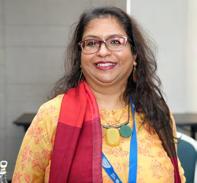
“From the first DARE to now, the presence of the Global South is strong and is growing,” she said. “This is s space where you have the Global North as well—a beautiful mix of mutual learning and sharing. This is a space for radical re-imagination and of doing theology from margins. It challenges us to engage with people in margins and to rise up and resist the deadly systems and structures that deny the affirmation of life with dignity."
Das believes DARE is about sharing knowledge in a safe space. “DARE brings enriching engagements between young scholars and distinguished theologians and scholars,” she said. “This is also a space where people are not competing with each other, but strengthening each other’s research.”
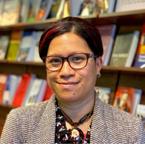 Jin
Jin
Young Choi, Colgate
Rochester Crozer Divinity School, USA
“I facilitate these groups not because I’m an expert but because I’m learning from others, expanding my knowledge, and engaging with others,” she said. “DARE is not really about products—but the process.” As she organizes DARE sessions and enters the collaborative spirit, she gains energy. “The knowledge people bring from their concrete contexts of struggle is she said. Choi hopes DARE will continue to serve as a platform that produces knowledge and discourse for social change and liberation.
September 2023 30 AT A GLANCE CWM News
The Steering Committee of the DARE Global Forum brought open minds, long-term goals, and determination for a better future. Below, their voices bring a sense of what DARE was all about, and how the ideas nurtured will be harvested locally.
Statement on the release of radioactive water from the Fukushima nuclear plant into the Pacific Ocean

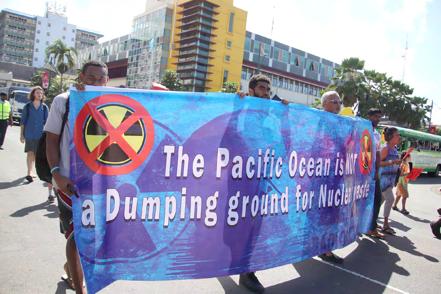
The Council for World Mission is a worldwide partnership of churches with 32 members spanning six global regions, with 20 of them in Asia-Pacific regions alone. The members are committed to creating Life-flourishing Communities, living out God’s promise of a New Heaven and a New Earth. In envisioning the Life-flourishing Communities, CWM sees the unfolding of a restored and renewed creation, an experience of a different world in our lifetime, where human dignity is protected, poverty eradicated, climate catastrophe abated, ideologies of supremacy demolished and peace reigns.
It is in this context of our commitment towards a life-flourishing creation that we see the release of more than a million metric tons of radioactive water from the destroyed Fukushima Daiichi nuclear power plant into the Pacific Ocean as a grave threat to the environment, marine life, and the well-being of communities that rely on these waters. It will result in radioactive substances accumulating in various marine species, affecting the entire food chain and potentially harming fish populations and other aquatic organisms.

Introducing radioactive materials could disrupt the balance of the ecosystem, affecting species distribution, migration patterns, and overall biodiversity. It could threaten human health, creating unforeseen long-term health consequences, especially if consumed through contaminated seafood or direct exposure. Nuclear wastewater could lead to the contamination of fish stocks, damaging these industries and affecting the livelihoods of fishermen and those involved in aquaculture.
We express our disappointment in the International Atomic Energy Agency (IAEA) for the irresponsible report that downplays the potential hazards of the wastewater release. We urge the IAEA to take into account the broader ecological and ethical implications of their assessments, especially when it comes to the well-being of vulnerable communities and ecosystems that are integral to the flourishing of life.
CWM, a global partnership of churches in mission that strives to create Life-flourishing Communities, demands that the Japanese Government and the management of the Tokyo Electric Power Company (TEPCO) indefinitely stop the release of nuclear-contaminated water into the Pacific Ocean. Japan needs to learn a
lesson from the apocalyptic disaster of the Fukushima tsunami that caused the nuclear meltdown. They cannot attempt a similar environmental tsunami to all the pan-Pacific countries and Islands.
We believe the United Nations, as a custodian of global well-being, and the Japanese Government have a moral duty to listen to the cries of the people in the Asian Pacific countries who are living in fear of the potential consequences of this decision. Our call is not one of antagonism, but of compassion and responsibility. We appeal to both entities to reconsider their stance and engage in a transparent and inclusive dialogue with the affected nations and communities.
The CWM calls upon the churches and the ecumenical communities to affirm and support this stance against the release of nuclear-contaminated water into the Pacific Ocean, urging the decision-makers to consider alternative solutions that uphold our responsibility as stewards of creation, protect the livelihoods of our neighbours, and honour God’s call to love and care for all that God has made. The time is now to halt the Fukushima ocean release and embrace alternatives that echo God’s call to care for all living beings.
STOP Ocean Dumping SAVE The Pacific Ocean ENABLE Life-flourishing Alternatives
September 2023 AT A GLANCE Statements & Messages
Photo: Paci c Conference of Churches
Message on Transformative Ecumenism: Life with Justice and Dignity for All

Around 60 people, including church leaders – lay and clergy, women and youth—theologians, Christian social activists, and representatives of civil society organizations from twenty-seven countries in Africa and the world gathered in Nairobi to reflect further on the meaning and implications of Transformative Ecumenism. As an attempt to reimagine ecumenism in response to the palpable fragility characterizing the contemporary global landscape, Transformative Ecumenism proposes new ways of understanding and living out ecumenism in the 21st century. This message was adopted at the public launch event on August 19, 2023, following a two-day consultation and an encounter visit to Kibera, a Nairobi slum that is considered one of the largest informal settlements in Africa.
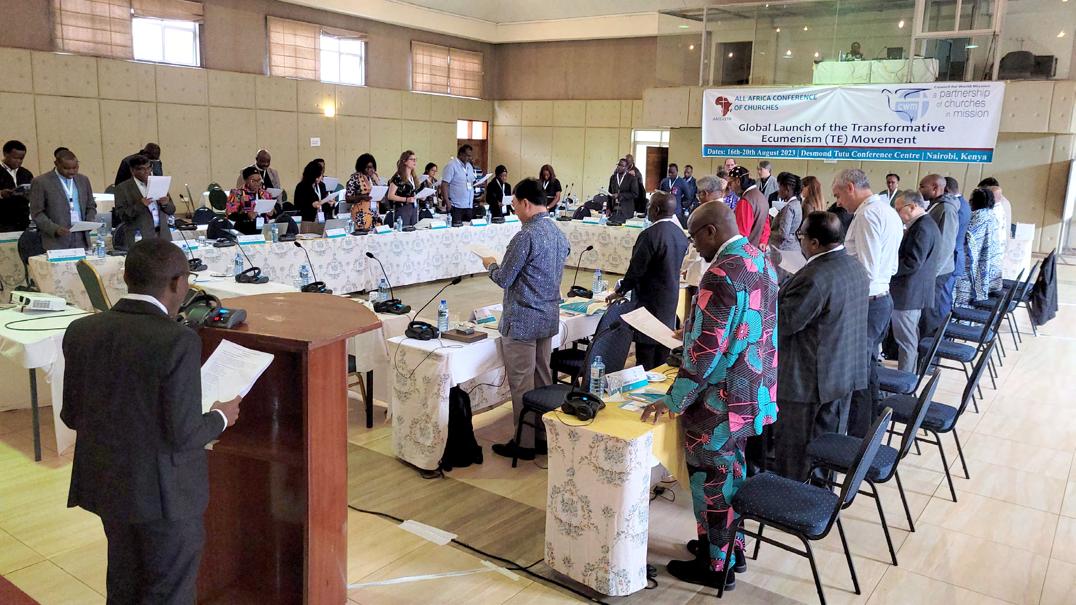
“Let justice roll down like waters and righteousness like an ever-flowing stream”. Amos 5.24
The backdrop of Africa’s vast and complex political, economic, social and religious realities and the awareness of the diversity, complexity and global nature of Christianity helped us to understand afresh the demands of the gospel promise of life with dignity and justice for all. Our gaze shifted from the realm of the privileged to the crucible of the marginalized. We

made ourselves conscious of the many threats to life, such as wars and war economies, economic injustice, right-wing ideologies, climate crisis, debt bondage, forced migration and human trafficking, and violent extremism. Consequently, we explored resistance, advocacy and partnerships as possible responses, proclamation as speaking truth to power, witness as transformative presence and discipleship as a vocation of active hope. We asserted that Christian unity is covenanting for justice and peace so that God’s promise of life for all becomes a reality. We were convinced that people-based, justice-driven and transformative expressions of Christian presence and participation are crucial to live out this mandate. We acknowledged that Transformative Ecumenism offers such possibilities, echoing the prophetic call for a spirituality of life, catalyzing both critical and creative endeavours toward a world where life flourishes, justice prevails, and dignity is ensured for all.
Our time and conversation with the people and their accompaniers in Kibera, vindicated our resolve and commitment to confront the forces of marginalization and to accompany those resisting the same through creative and collaborative actions for change. Further, it challenged us to discover the church afresh as a catalyst, a participant and an agent of audacious hope and transformation amidst life-denying adversities.
September 2023 32 AT A GLANCE Statements & Messages
Therefore, as we covenant to be together in Transformative Ecumenism, we commit ourselves to:
Advocate for justice and dignity for all of God’s creation, asserting that these are pivotal for the realization of the promise of abundant life for all. We recognize the potency of our collective yearnings for life, subjugating the forces of death, and commit ourselves to actions that encompass speaking truth to power, resisting injustice, and offering hopeful alternatives to the world’s death-dispensing paths.
Decolonize, liberate, and restore the oppressed oikumene of the past and present empires. We recognize the urgent need to move away from Eurocentric attitudes and responses to the diversity and complexity of the present world order. By denouncing greed, domination, discrimination, and exploitation manifesting in diverse forms and spheres of life, we strive for a world guided by the values of love, respect, justice, mutuality, interdependence, and an organic bond with nature.
Dismantle hierarchies within communities and churches in the manner of Jesus our Lord who asserted his ministry as one that ‘serves rather than lords over’ and aligned with the victims of hierarchies. This indicates initiating and nurturing respectful, inclusive, and participatory ways of being church.

Reject the margins-creating centers, and instead affirm the agency and visions of those who are marginalized and are resisting the forces of marginalization as our pathfinders.
Engage with young people by embracing their innovative and alternative visions of the world, and
opening spaces for their leadership and participation. We also recognize the need to nurture intergenerational collaborations.
Ensure the active involvement of women in all aspects of church ministry and leadership. We assert that the church is called to be and to effect just and inclusive communities.
Collaborate with individuals and communities of all faiths and ideologies to work toward a future that enables the flourishing of life for all. This also implies partnering with civil society organizations to advocate for democratic politics and equitable, inclusive and sustainable economic policies.
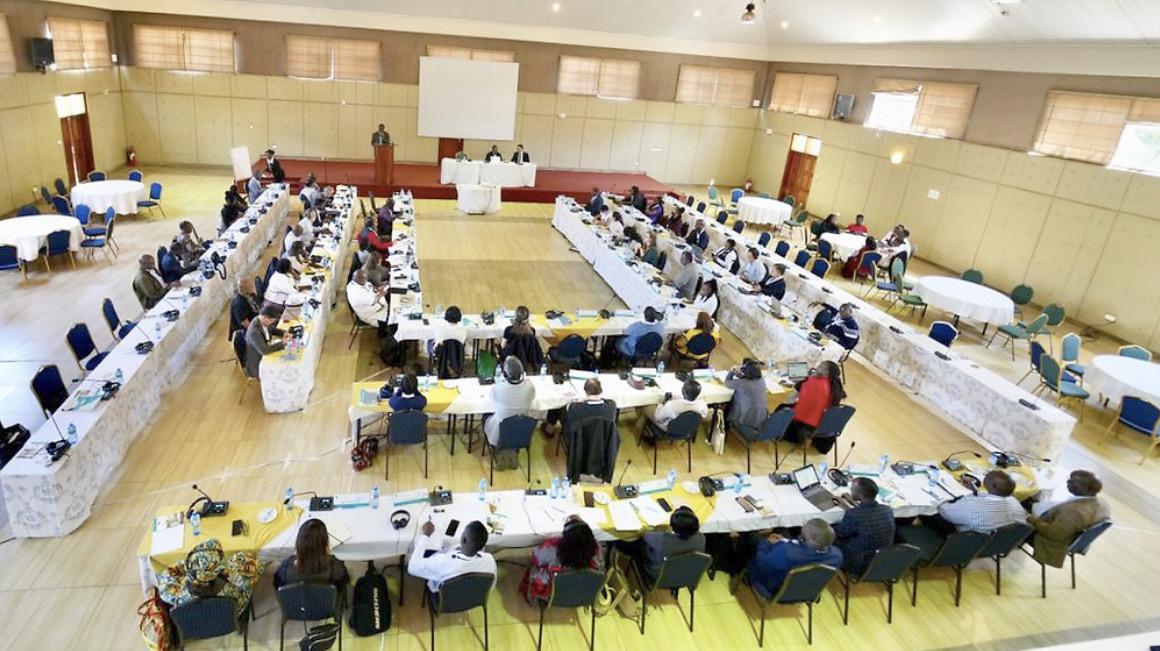
Acknowledge those knowledge systems and people’s traditions that uphold and nurture the sanctity of life and the integrity of God’s creation. We assert that theological education must be in the service of the transformation of the world rather than the ritual and institutional edifices of the church. We commit ourselves to working with our theological institutions to formulate curricula that align with the core concerns of Transformative Ecumenism.
We reiterate that the challenges of this moment in time require reimagining ‘ecumenism as a new awareness of the interconnectedness of life, an alternative vision of the world, a movement of assembling partners for justice, and a passionate vocation that inspires creative changes toward a world that ensures life with justice and dignity for all. Such an understanding of ecumenism is transformative because it insists on the need to be transformed and to effect transformation as a way of participating in God’s mission for the world’.

September 2023 AT A GLANCE Statements & Messages
In Memoriam Dr Daniel Preman Niles: An Asian Prophet for the World Mission
The Council for World Mission mourns the passing of Dr Daniel Preman Niles on Thursday, 3 August 2023—on the same day after his beloved wife, Sherina Niles, passed away a year ago—at his residence in Beckenham, London. Dr Niles was the third General Secretary of the CWM and served the community of churches in mission with great commitment from 1991-2002. His visionary leadership and unwavering commitment to the mission of CWM have left an indelible mark on the CWM.

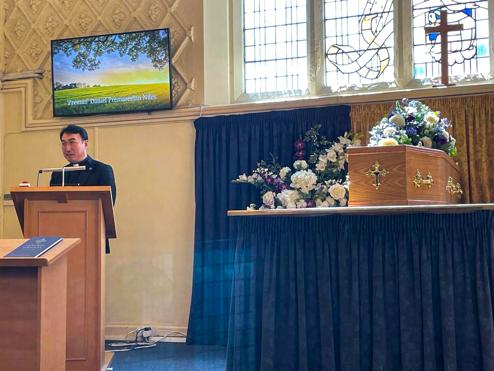
Emanating from Sri Lanka, as one of the two sons of Dr DT Niles, he had his theological training at Oxford University, and Princeton Theological Seminary, where he earned his doctorate in biblical studies specialising in the Old Testament. He spent six years teaching and serving as an Academic Dean at the United Theological College of Lanka. He moved to Singapore in 1979 to work for the Christian Conference of Asia (CCA) as Executive Secretary for Theological Concerns, focusing on theology in Asia, and subsequently, he was appointed as CCA’s Associate General Secretary in 1983. He helped the organisation to stabilise its financial situation. In 1986 he was appointed Director for the programme on Justice, Peace, and the Integrity of Creation (JPIC) at the World Council of Churches (WCC). He organised the JPIC Convocation in Seoul from 5-13 March 1990, which was considered one of the major events of the ecumenical movement, bringing together about 1000 global Christian leaders, theologians and activists to support the creative power of people’s movements in their struggle for human dignity, liberation, and the achievement of just and participatory forms of government, in part through resisting life-threatening systems.

As the General Secretary of the CWM, Dr Niles assumed a pivotal role in shaping the future of global mission work for the CWM community. During his tenure, he enabled an ecumenical process to further the discussion on cross-cultural and contextual approaches to theology. He also initiated the process
for the Network of Theological Enquiry (NOTE) as an effort to help bridge the divide between theology and religious studies and explore common concerns among theologians from the global south. Jointly published by the CWM and CCA, The People of God Among All God’s People: Frontiers in Christian Mission can be seen as one of the prominent outcomes of the NOTE process. He facilitated the process of creating an endowment fund through the capital received as the Gift of Grace from the sale of Nethersole Hospital in Hong Kong. As a result, CWM not only was able to begin the Mission Support Programmes (MSP) but also stabilised its financial status even today.
Through his leadership in prominent global ecumenical organisations, to which he dedicated most of his life, and through his academic scholarship, he contributed greatly towards the global ecumenical community, especially the Asian contextual and liberation theology. His recent publications, The Lotus and the Sun and Is God Christian? are a couple examples of his commitment to promoting Asian contextual and public theology. A festschrift titled, Scripture, Community and Mission, was jointly published in 2003 by the CWM and CCA in honour of Dr Niles.

September 2023 34 AT A GLANCE Statements & Messages
Dr Niles understood that the challenges of our time required not only intellectual solutions but also the development of a shared understanding and a collective will to effect positive change. His approach to global mission was inclusive and participatory, recognising the wealth of wisdom that emerged from the diverse cultures and traditions of Asia.
He tirelessly worked to bring people together, encouraging interfaith dialogue, and promoting respect for differences as well as shared values. He served as an inspiration to numerous young Asian theologians and offered them opportunities to develop contextual ways of living out theology in Asia. His ability to connect with individuals from all walks of life was a testament to his genuine humility and compassion.
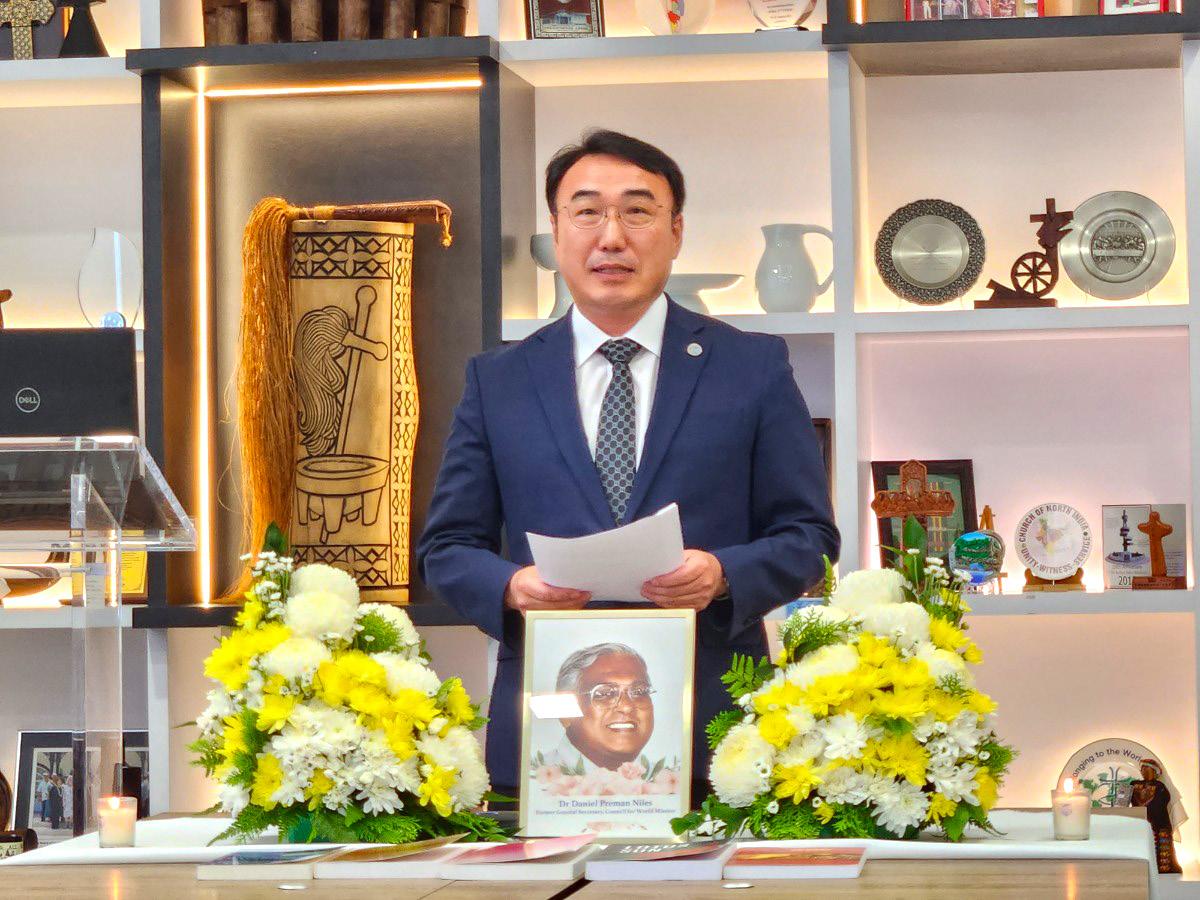

As we bid farewell to this extraordinary leader, let us remember and celebrate the life he lived, the ecumenical values he stood for, and the theological inspiration he provided to us all.
On behalf of the CWM Moderator, Rev. Lydia Neshangwe, Directors, Trustees, member churches, and all my staff colleagues, I extend my deepest condolences and prayers to his children, Damayanthi, Dharman, and Radhika, family members, and all those who grieve his passing. The CWM staff held a memorial


prayer on Monday, 7 August 2023, at the CWM office in Singapore, celebrating the life of Dr Niles.
May his soul rest in eternal peace, and may his legacy continue to shine brightly in our hearts.
Rev. Dr Jooseop Keum General Secretary Council for World Mission
September 2023 AT A GLANCE Statements & Messages
NIFEA Letter to G20 Leaders Summit 2023
H.E. Sri Narendra Modi
Prime Minister, Republic of India and Chair, Group of Twenty (G20)
Chair Modi and G20 leaders:
Your Excellencies:

Today we live in a world where business and financial relations have taken precedence over all other aspects of life. The logic of profit has worked to subsume all else: well-being and progress are judged first and foremost in terms of monetary and economic expansion. This thinking has elevated and disconnected prevailing economic systems from social and ecological

The G20 meets this year in India with the theme “One Earth, One Family, One Future”. Yet the politics of money that systematically favours the wealthy over the poor has generated immense inequality across and within countries, eroding social cohesion and undermining trust in democratic institutions. This has led to political polarisation, “democratic backsliding” and rising authoritarianism in many parts of the world where dissent and difference are being crushed.
Nature and the environment have been reduced to an “asset class” for financial gain, and the Earth is treated as a tap and a sink - a place from which unlimited resources are drawn and unlimited pollution dumped. The consequences include runaway climate change and unprecedented biodiversity loss that now pose existential threats to present and future life on the planet. Though we possess the capacity and creativity to develop solutions, growing local, national and regional tensions are making it increasingly difficult to address within a closing window of opportunity the climate emergency and broader ecological crisis.
Against this sobering backdrop, our organisations, the World Council of Churches, World Communion of Reformed Churches, Lutheran World Federation, World Methodist Council and Council for World Mission, which together represent more than 600 million Christians in over 120 countries, continue to call for a New International Financial and Economic Architecture (NIFEA) that fosters just, peace-loving and flourishing societies. Such an architecture is indispensable to respond to climate change, immiserating growth, and democratic degeneration. The G20 must now resolutely commit to promote the formation of such an architecture.
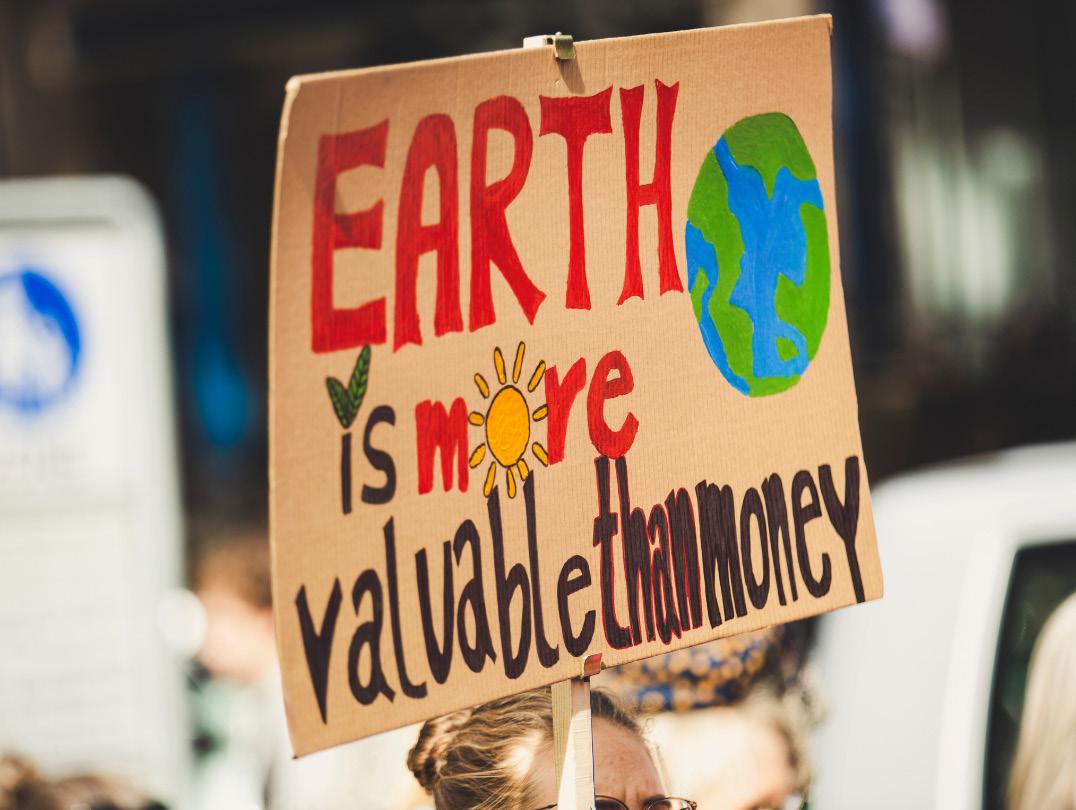
September 2023 36 AT A GLANCE Statements & Messages
As you gather in New Delhi from 09 to 10 September 2023 ahead of the UN General Assembly, SDG Summit and Climate Conference, we urge you as global leaders to take the following critical steps towards systemic change:

Support a UN Framework Convention on International Tax Cooperation. Global tax discussions must take place under the aegis of the UN, where there is broad participation of countries and civil society. A legally binding UN tax convention promoting fairer and more inclusive international tax rules would curb illicit financial flows and tax evasion by multinational corporations and super wealthy individuals, and better enable developing countries to mobilise domestic resources.
Implement progressive wealth taxes to tackle destabilising levels of inequality. A wealth tax (of 2% on the world’s millionaires, 3% on those with wealth above $50 million and 5% on the world's billionaires) could generate US$2.5 trillion annually - enough to lift 2.3 billion people out of poverty and deliver universal health care and social protection for 3.6 billion people.
Implement progressive carbon and pollution taxes to curb carbon and biosphere overconsumption. Levying a tax on the cost of pollution and eliminating public subsidies for fossil fuels could raise an additional US$ 3.2 trillion annually to finance urgent transformations in energy and food systems as well as costs of mitigation, adaptation and reparations for climate-related loss and damage in climate-vulnerable developing countries.
Release developing countries from onerous external debts. While prudent borrowing advances development, excessive debt remains an obstacle to attaining the Sustainable Development Goals in many countries. Today, over 3 billion people live in countries that spend more on interest payments on debt than on education or health. The 2021 issue of Special Drawing Rights showed how SDRs ease liquidity constraints on heavily indebted developing countries during crises. For insolvent countries, adequate debt cancellation is needed to free up resources to combat poverty and climate change.

maternal health and empowering women to make their own reproductive choices are critical for supporting women workers.
We pray that you will place vulnerable communities and the planet at the heart of your deliberations, and that the outcomes of the G20 Leaders’ Summit will contribute towards the restoration of our only Earth, the holistic health and well-being of the entire human family, and the safeguarding of our children’s future.
Sincerely,
Prof Rev Dr Jerry Pillay General Secretary World Council of Churches
Rev
 Philip Vinod Peacock Collegial General Secretariat World Communion of Reformed
Philip Vinod Peacock Collegial General Secretariat World Communion of Reformed
Rev Anne Burghardt
General Secretary
Lutheran World Federation
Bishop Ivan M. Abrahams General Secretary
World Methodist Council
Rev Dr Jooseop Keum General Secretary
Council for World Mission
Churches
September 2023 AT A GLANCE Statements & Messages
Africa
UCCSA Launches Eco Initiative with Spekboom Tree Planting in Swakopmund
On the September 19, 2023, the United Congregational Church of Southern Africa (UCCSA) launched its Eco initiative in Swakopmund during its Executive Session. This initiative aimed to promote environmental sustainability and stewardship within the church and the wider community.
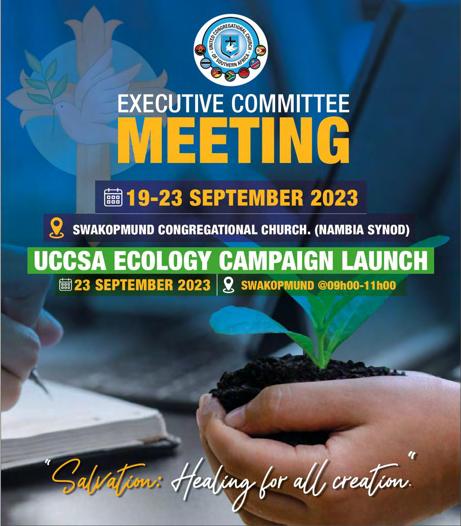
As part of the UCCSA Eco launch, a Spekboom tree planting initiative took place in Swakopmund.
Spekboom, also known as Portulacaria afra, is a drought-resistant succulent native to South Africa. It is known for its ability to absorb large amounts of carbon dioxide from the atmosphere, making it an effective tool in combating climate change.
The tree planting initiative sought to raise awareness about the importance of reforestation and the role of trees in mitigating climate change. It also aimed to encourage community engagement and participation in environmental conservation efforts.

The UCCSA Executive, along with members of the congregation and volunteers, came together on this day to plant Spekboom trees in designated areas. This
act symbolizes their commitment to environmental responsibility and their desire to create a greener and more sustainable future.

By launching the UCCSA Eco initiative and organizing the Spekboom tree planting event, the UCCSA demonstrated its dedication to environmental stewardship and its role as a responsible custodian of the Earth.
The Rev. Damon Mkandawire (CWM Mission Secretary for Ecology and Economy) delivered a Keynote Address during the launch.
Rev. Wellington Mthobisi Sibanda (UCCSA Chronicle Editor)
AT A GLANCE Member Church News September 2023 38
Caribbean
CWM Moderator pays inaugural visit to Guyana Congregational Union (GCU)
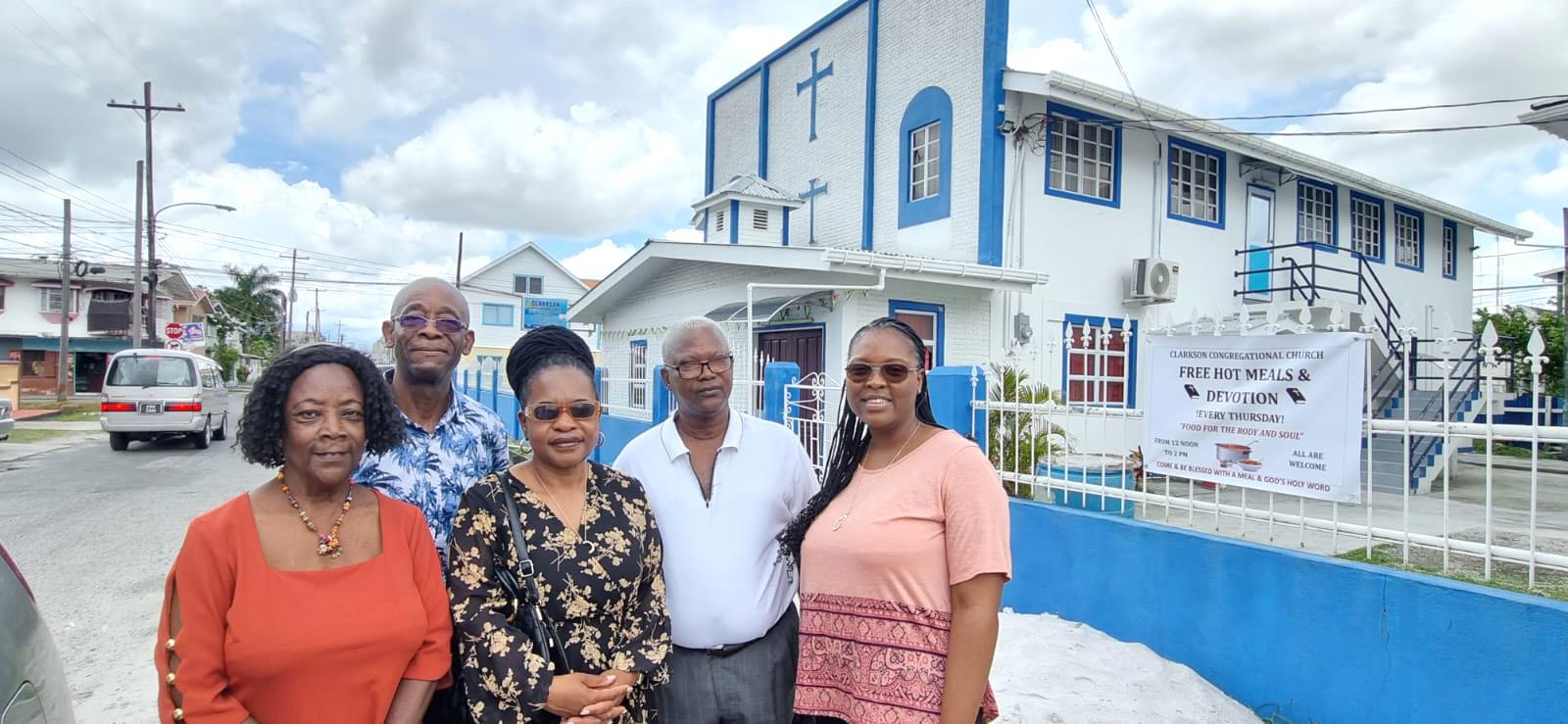
Council for World Mission (CWM) Moderator Rev. Lydia Neshangwe’s inaugural visit to Guyana and the CWM Caribbean region was to the office of Guyana Congregational Union (GCU) in Georgetown, Guyana on August 19, 2023. Delighted to be with its leadership, Rev. Neshangwe listened keenly to the history of congregationalism in Guyana and to GCU’s current issues, celebrations, and challenges shared by General Secretary Rev. Keith Haley and Assistant General Secretary Rev. Leander Warren.
With the observation that churches across the world were stagnating and needed a revival of the Holy Spirit, the Moderator shared the message that it is time to pray for a revival in their churches.

Rev. Neshangwe presented a meaningful gift to Rev. Haley—a flame made from stones in Zimbabwe where she resides, serving as a reminder to ask God for direction when Rev. Haley feels overwhelmed. She ended the courtesy visit by asking God to fill the GCU with the Holy Spirit and encouraged the leadership to allow the Spirit to challenge them as they seek vision to lead in Guyana.
The Moderator’s visit came on the occasion of the 200th Anniversary of the 1823 Demerara Slave Rebellion, a commemoration which would also be attended by Chairperson of CWM’s The Onesimus Project (TOP), Prof. Rev. Dr Roderick Hewitt. In preparation for their participation in the commemorative service, GCU leaders provided a guided tour highlighting significant sites of the 1823 uprising. The visit to the GCU ended with lunch with some of the leaders and ministers of the GCU.
Vickeisha King Burke Programme Associate Caribbean Region and PIM Coordinator
She encouraged them to pray for this revival among GCU’s 32 congregations in eight groups across Guyana, adding that the vision of the church needs to be spiritual and not focused solely on being theologically correct.
AT A GLANCE Member Church News September 2023 39
The

East Asia
Presbyterian Church of Korea’s Journey Towards Environmental Stewardship

supporting their members in engaging in meaningful action and advocating for sustainable policies, they demonstrate the profound influence religion can have on the pursuit of environmental justice. Their endeavours attest to the fact that faith can play a part in fostering social and environmental transformation.
Abold, promising statement that greets visitors to the Presbyterian Church of Korea (PCK)’s Centennial Memorial Building—“The Presbyterian Church of Korea Commits to become Carbon Neutral by 2050”—hints at PCK’s commitment to climate justice. Through PCK’s Green Church Initiative, attendees of the recent Council for World Mission (CWM) management team meeting witnessed this powerful testament to the potential of faith communities to pave their way for positive change for the earth.
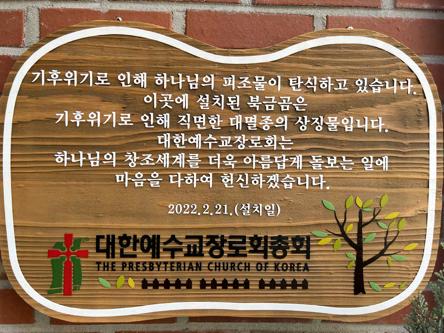
An aspect of PCK’s journey is their alignment of faith with creation care. They have reinterpreted the salvation story to encompass the whole creation and embrace the interconnectedness of all living beings, recognising the intrinsic value of God’s creation. Worship services now foster a deeper sense of responsibility towards the environment by highlighting gratitude for the land, reverence for the trees, and compassion for all living creatures.
In addition, PCK’s focus on incorporating a gospel of environmental responsibility into its teachings and its emphasis on education is laudable. Through sermons, study groups and educational programmes, they empower their members to become advocates for the environment. By prioritising simplicity, contentment and sacramental living, they demonstrate that living in harmony with nature is at the core of their faith. The emphasis on education bridges the gap between faith and ecological consciousness, inspiring individuals to embrace sustainable living and make environmentally responsible choices.
Rather than being discouraged by the challenges faced by environmental activists, they draw on their faith’s vision of hope, encouraging a steadfast commitment in their work for advocacy and justice. By

PCK’s Green Church Initiative serves as a beacon of hope, and also, an example for the global Christian community. By taking bold steps to address climate change and embracing ecological stewardship, they set an example for other churches and religious institutions to follow. Their commitment has the potential to ignite a ripple effect, where faith communities worldwide join hands in tackling environmental challenges and protecting God’s creation.
In conclusion, PCK’s journey towards becoming Carbon Neutral by 2050 illustrates the transformative power of faith in addressing environmental sustainability, and their commitment demonstrates that churches can play a central role in promoting climate justice and shaping a sustainable future for generations to come. The church has a unique capacity to connect its sacred life within to the world beyond, contributing to a holistic understanding of its mission.
As we reflect on PCK’s inspiring journey, we must acknowledge the urgency of the environmental crisis and the need for collective action to protect the planet. PCK’s commitment to environmental stewardship is a clarion call for communities of faith to integrate ecological consciousness into their worship, teachings, and advocacy. In so doing, we can foster a global movement that transcends borders and unites humanity in a common goal of environmental preservation.
Rev. Daimon Mkandawire Mission Secretary – Ecology and Economy
AT A GLANCE Member Church News September 2023 40
GEM School
Inspires proposals for economic justice for all

CTaking place from August 21 to September 1, 2023, in Kuala Lumpur, Malaysia, a city marked by stark socio-economic disparities, the 6th iteration of the Ecumenical School on Governance, Economics, and Management for an Economy of Life (GEM School 2023) brought together 24 participants to collectively reconsider economics for a fairer and more sustainable world. These participants hailed from over 20 countries across Africa, Asia, the Caribbean, Europe, Latin America, the Middle East, North America, and the Paci c. Among them were church leaders, pastors, theological students, nancial experts, advocates for economic justice, and environmental activists, all with the shared objective of fostering intergenerational and multidisciplinary dialogue and learning.
The ten-day program delved into the intersections of faith and economic justice through scriptural studies. It also equipped participants with fundamental economics training and tools for advocacy, in addition to exploring alternative economic ideologies and policy recommendations.
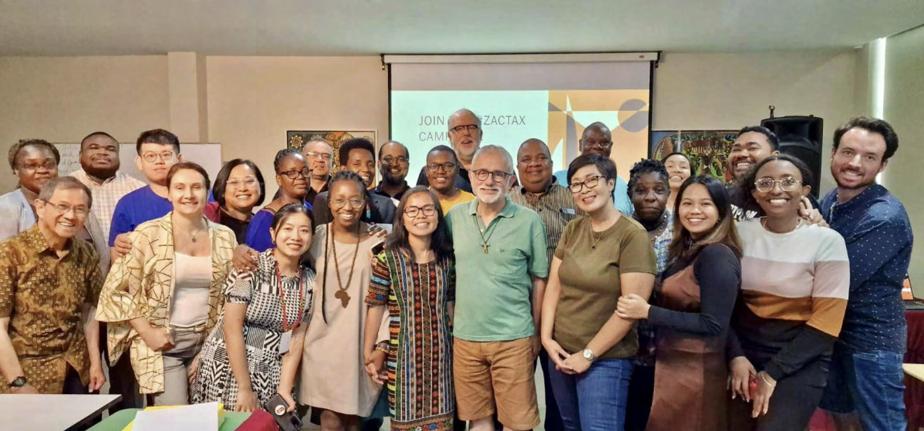
Re ecting on the interconnected challenges of staggering socio-economic disparities and the urgent imperative of sustainability, Rev. Daimon Mkanadawire, CWM Mission Secretary for Ecology and Economy, articulated, “GEM School engaged in thoughtful discussions around Ecological and Economic Justice. We explored the origins of inequality, the intricate relationship between economics and the environment, and the critical need for new economic paradigms, metrics, and policies, as well as for building communities that foster solidarity and governance structures to cooperatively construct a more equitable and sustainable world.”
At the conclusion of the program, which spanned nearly two weeks, participants drew from their extensive exchanges and newfound knowledge to put forth a variety of project proposals.
Rev. Karthik Sibanayam suggested incorporating discussions on economic justice into the curriculum of theological seminaries in Malaysia. Ampri Samosir, Patricia Mungcal, Rev. Chi-Kang Chiang, and Rev. Vavauni Ljalgajean jointly proposed initiatives focused on networking, mutual learning, and advocacy at the crossroads of climate and economic justice in Indonesia, the Philippines, and Taiwan.
AT A GLANCE Ecumenical News September 2023 41
Several proposals emphasized the importance of tax justice and reparations. Bruno Reikdal Lima introduced a communications project aimed at dispelling negative perceptions surrounding taxation, linking tax justice to people’s everyday lives, and strengthening the global tax justice campaign inspired by the Zacchaeus Tax movement in Brazil, one of the world’s most unequal countries. Hailing from the vulnerable climate context of Belize, Fr. Rudolph Dawson advocated for a campaign connecting tax justice with reparations for climate-induced losses and damages in the Caribbean.
Florence Iminza from Kenya also presented a proposal to initiate a survey as a foundational step for churches’ efforts toward just taxation, including within extractive industries across Africa. Iminza emphasized that a key takeaway from GEM School was that “just taxation systems are imperative for a new international economic order.” She added, “There is a pressing need for the global community of churches to unite in solidarity to promote an alternative economy of life.”
GEM School was hosted by the:
Council of Churches of Malaysia
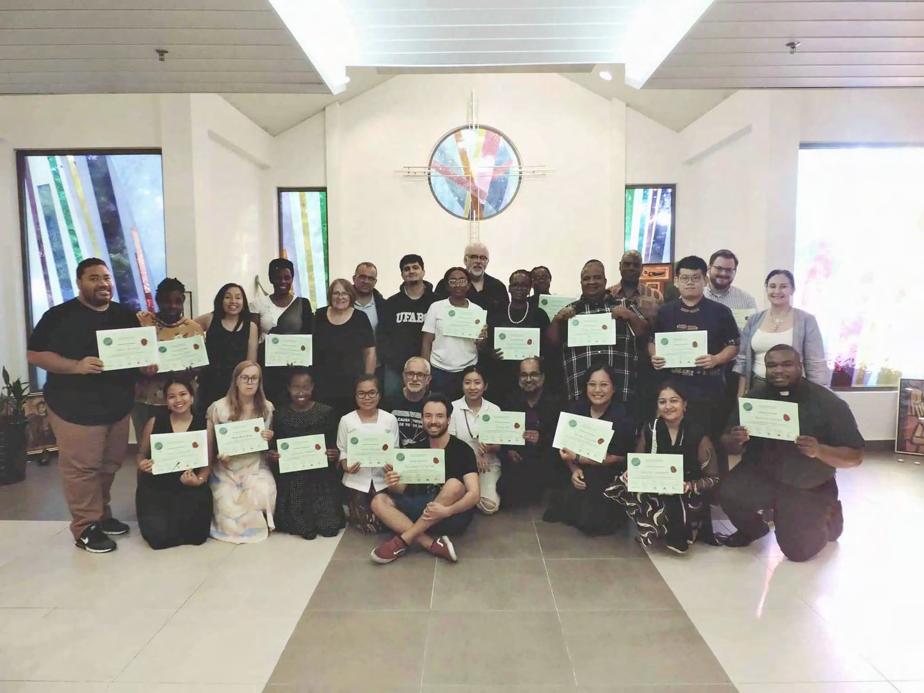
Convened by the:
World Council of Churches
World Communion of Reformed Churches

Lutheran World Federation
World Methodist Council Council for World Mission
As part of the New International Financial and Economic Architecture (NIFEA) initiative.
AT A GLANCE Ecumenical News September 2023 42
Council for World Mission Ltd. 114 Lavender Street #12-01, CT Hub 2 Singapore 338729 T: (65) 6887 3400 F: (65) 6235 7760 E: council@cwmission.org W: www.cwmission.org Company Limited by Guarantee Registered in Singapore Unique Entity Number 2012061 46Z Copyright © 2023 Council for World Mission Ltd. All Rights Reserved. Content may not be reproduced, downloaded, disseminated, published, or transferred in any form or by any means, except with the prior written permission of Council for World Mission Ltd.








 Romans 8:35
Romans 8:35




















 Chicken coop project
Planting of saplings
Chicken coop project
Planting of saplings






 Inauguration of the centre
Graduation
Stephen Chia
(Project Manager-Mission Support Programme)
Inauguration of the centre
Graduation
Stephen Chia
(Project Manager-Mission Support Programme)

























 The 2023 DARE forum marked a return to Bangkok, where the first DARE forum was held in 2017.
The 2023 DARE forum marked a return to Bangkok, where the first DARE forum was held in 2017.






 Jin
Jin
















 Philip Vinod Peacock Collegial General Secretariat World Communion of Reformed
Philip Vinod Peacock Collegial General Secretariat World Communion of Reformed











